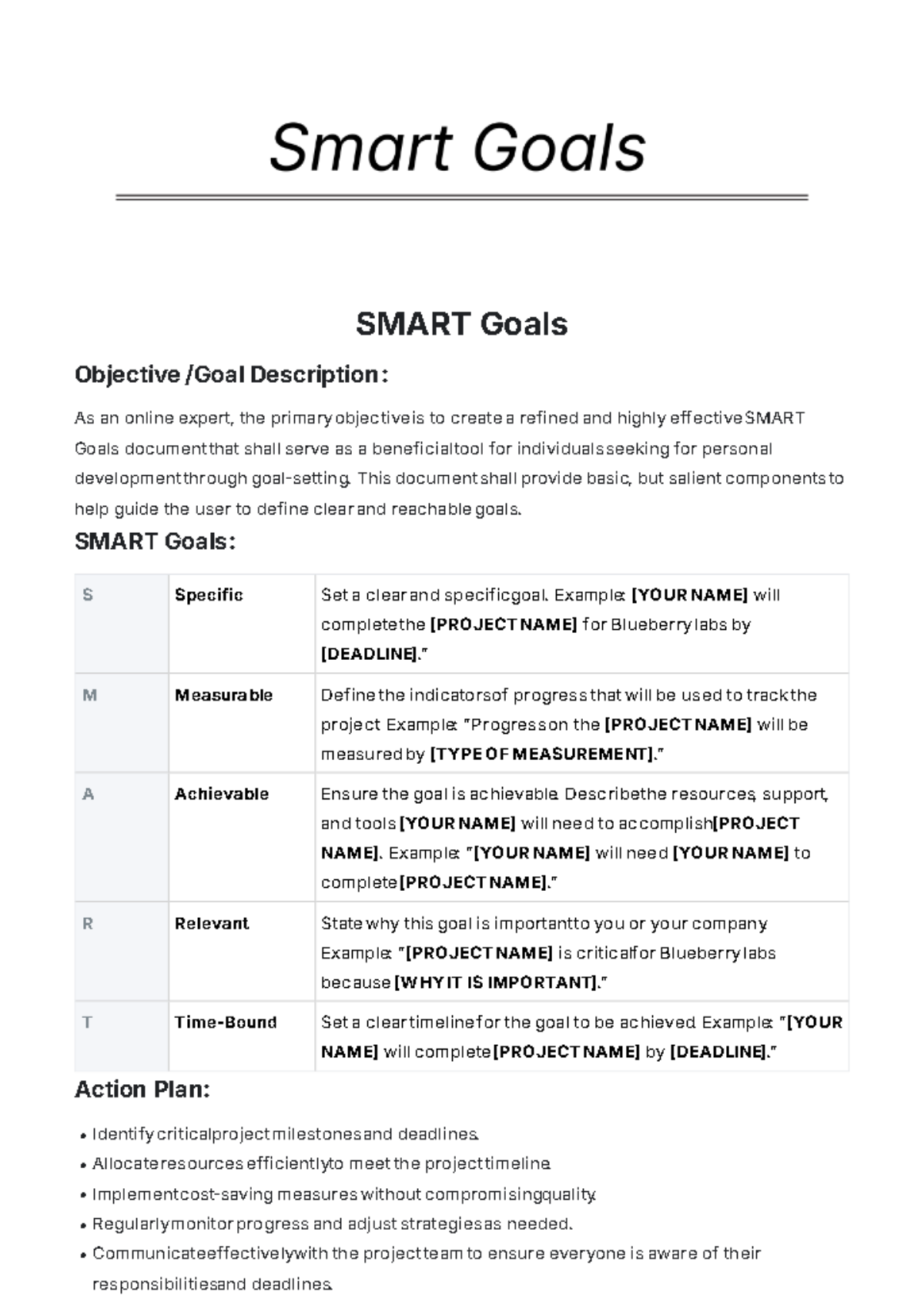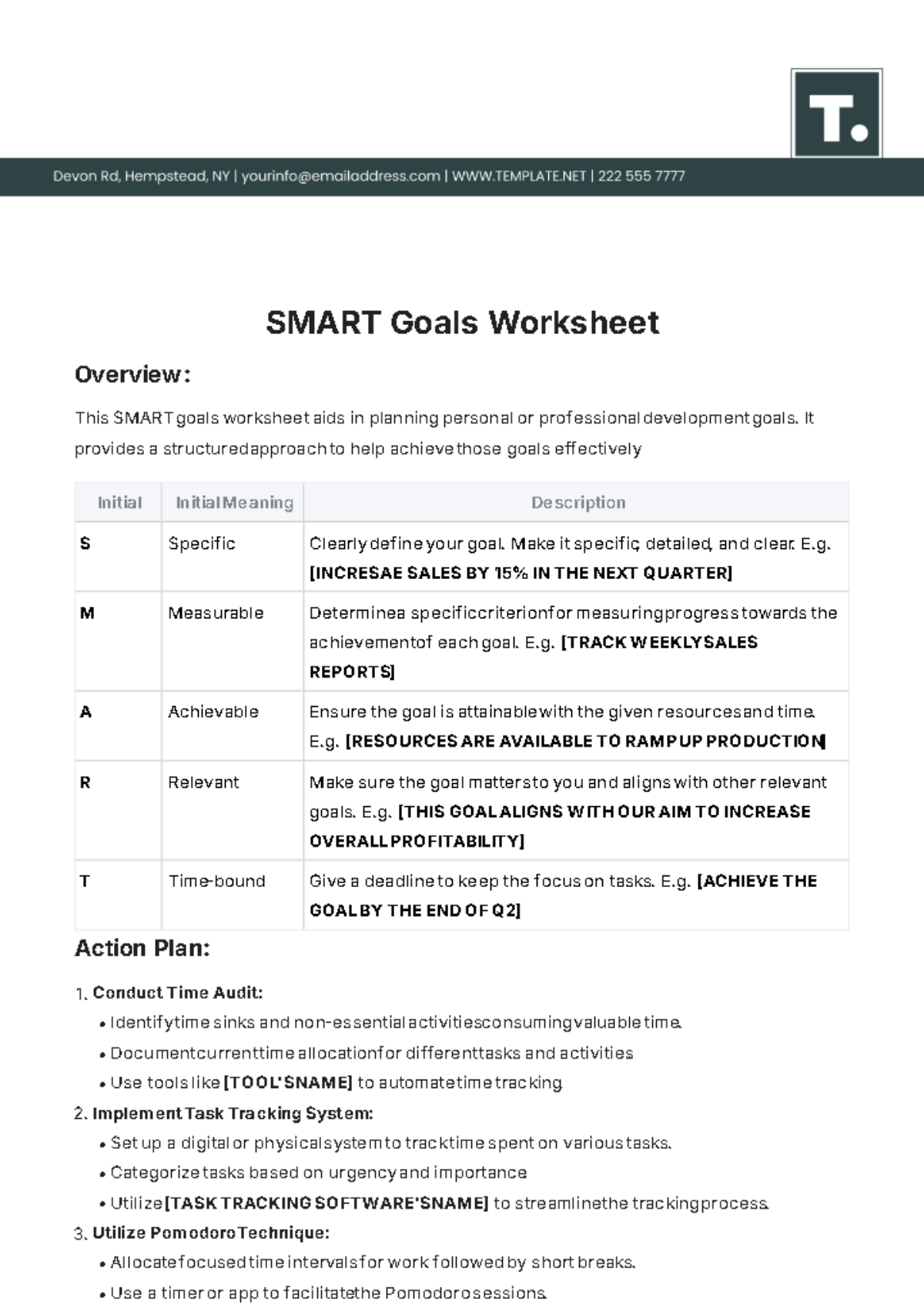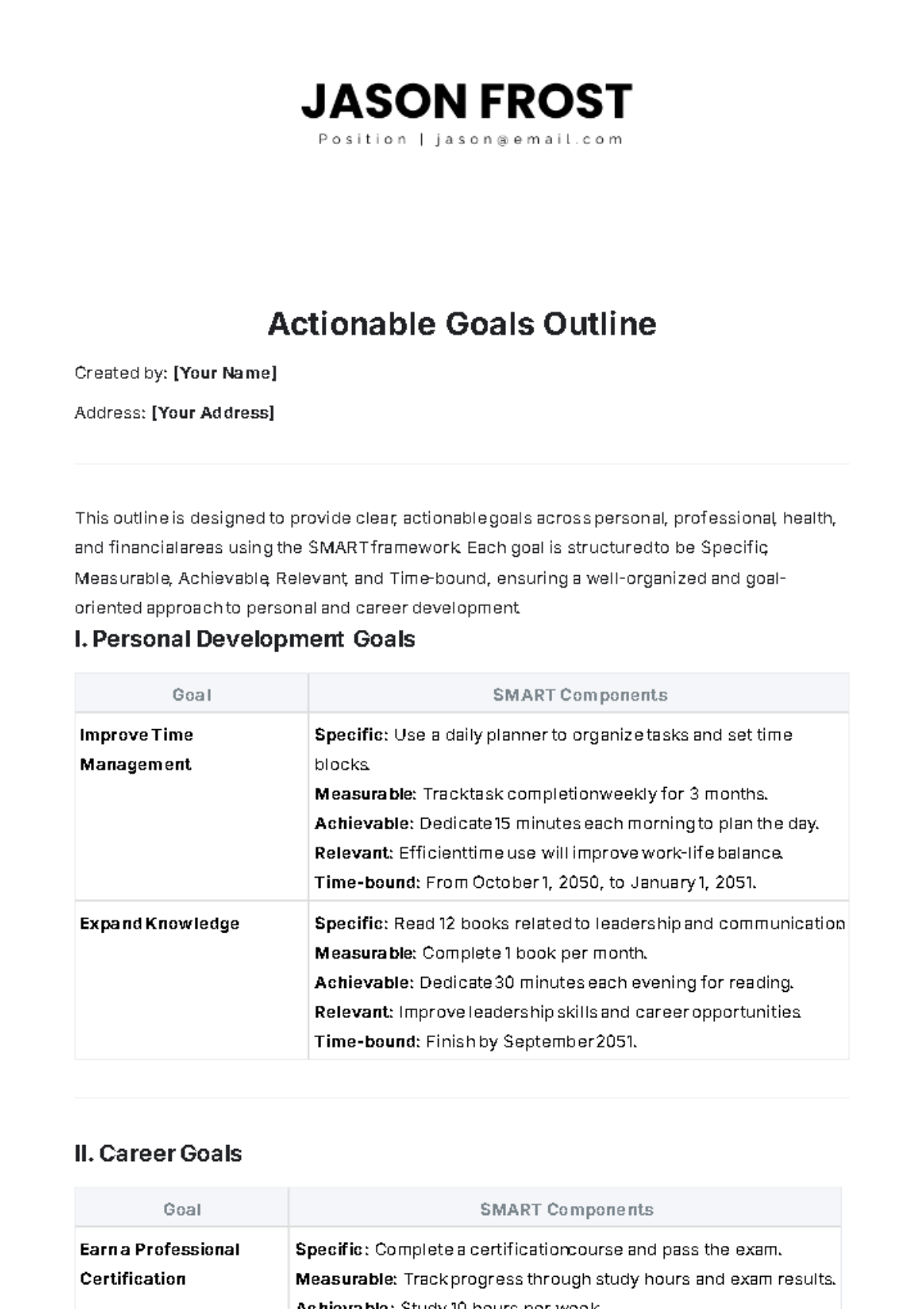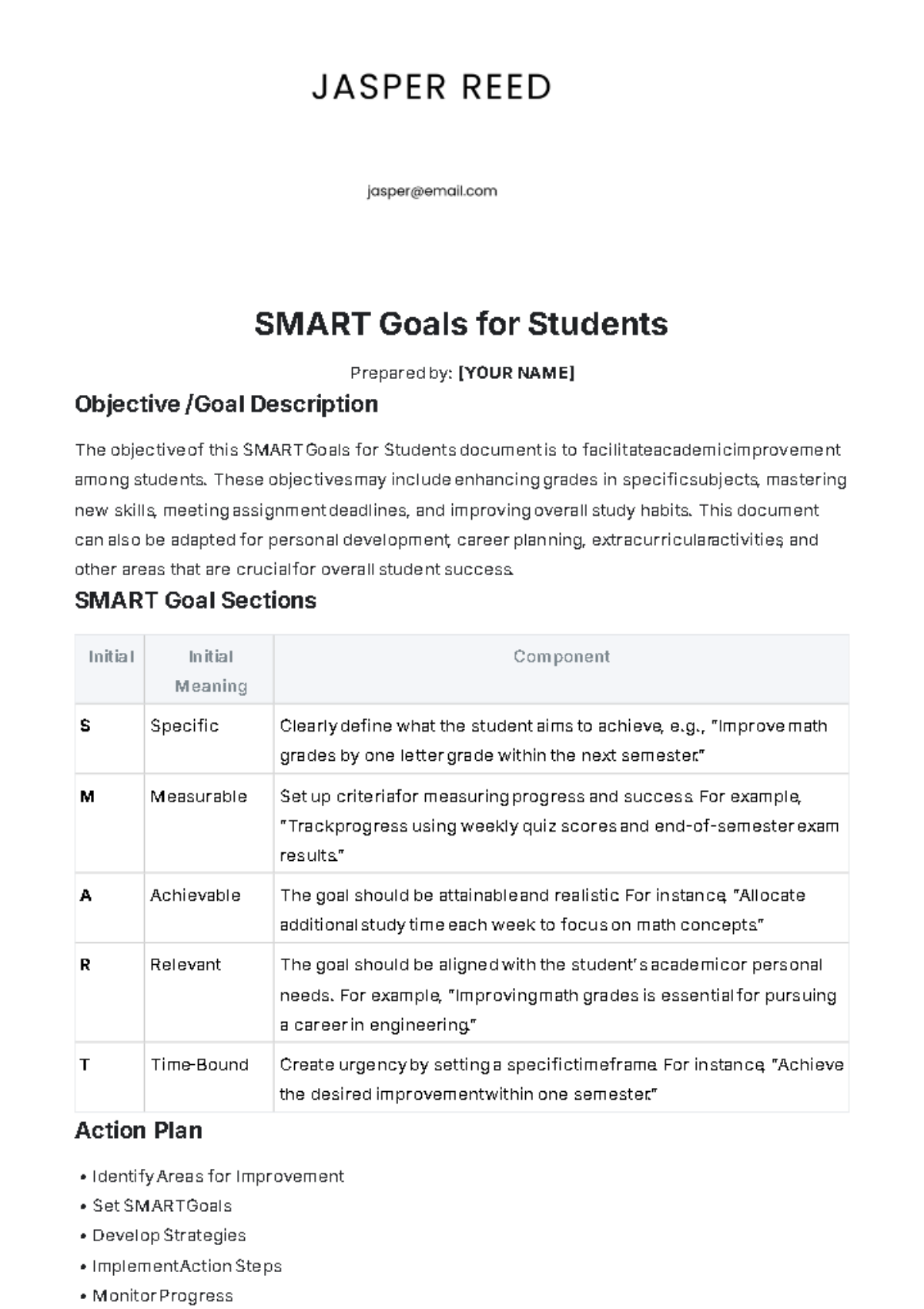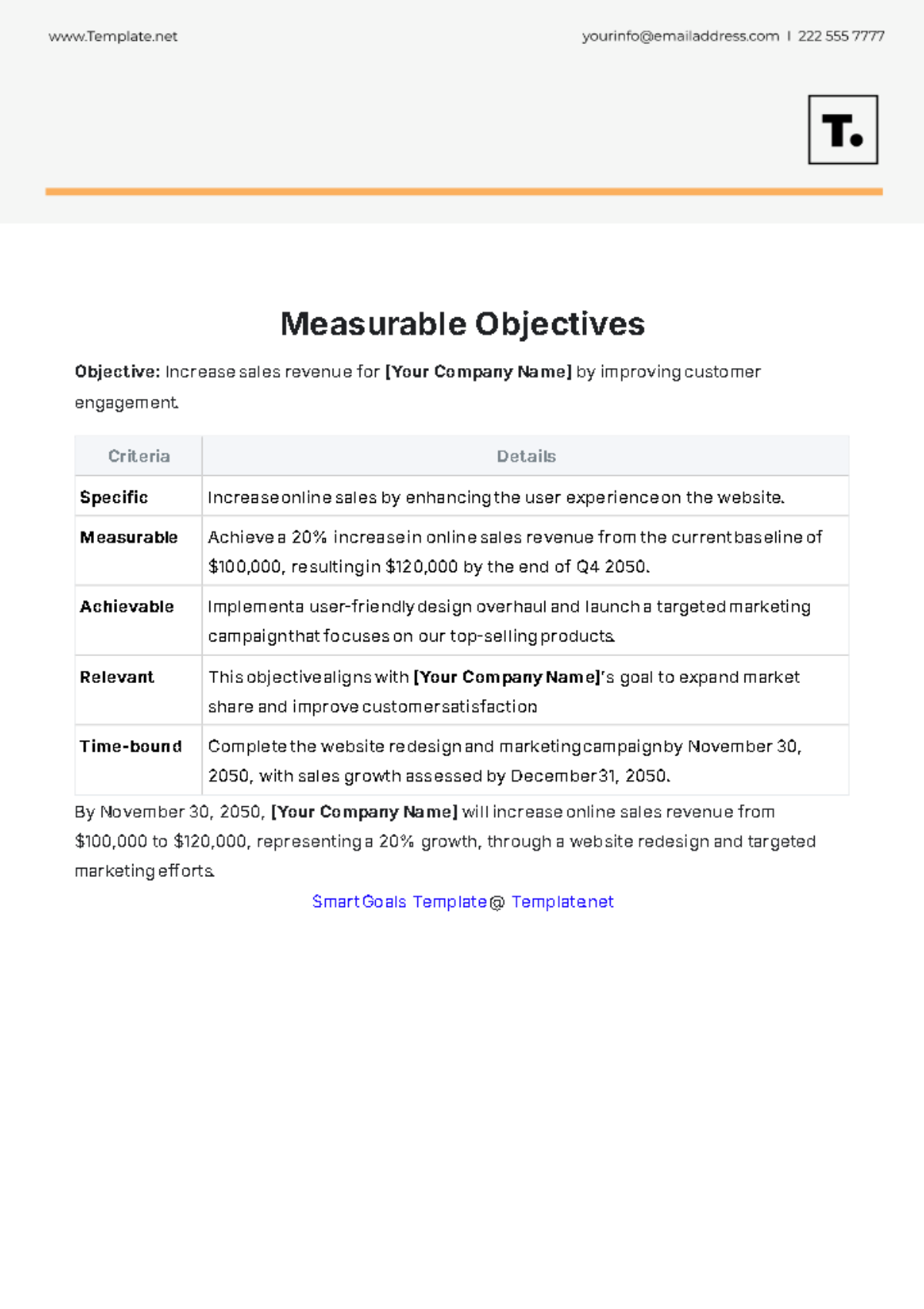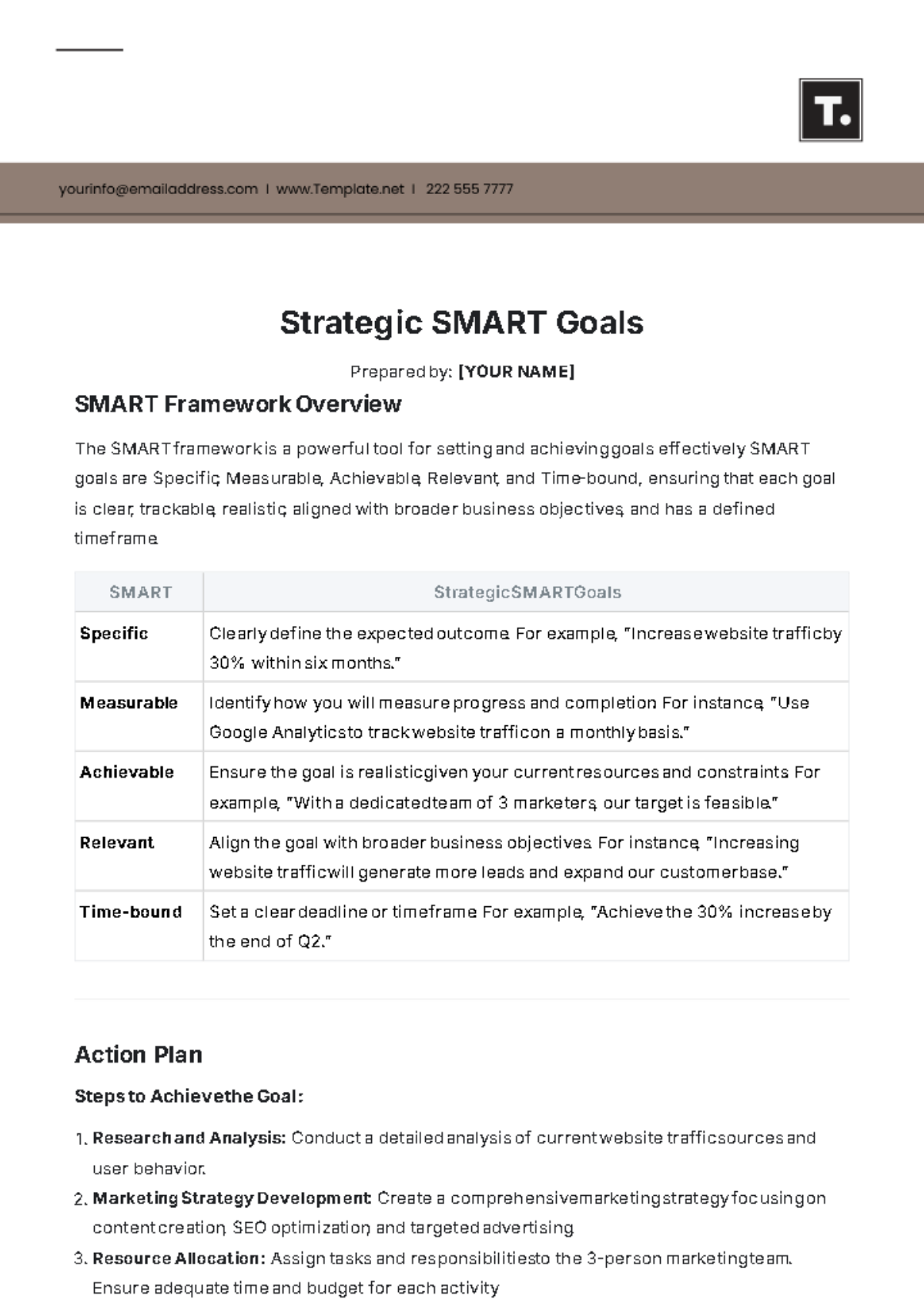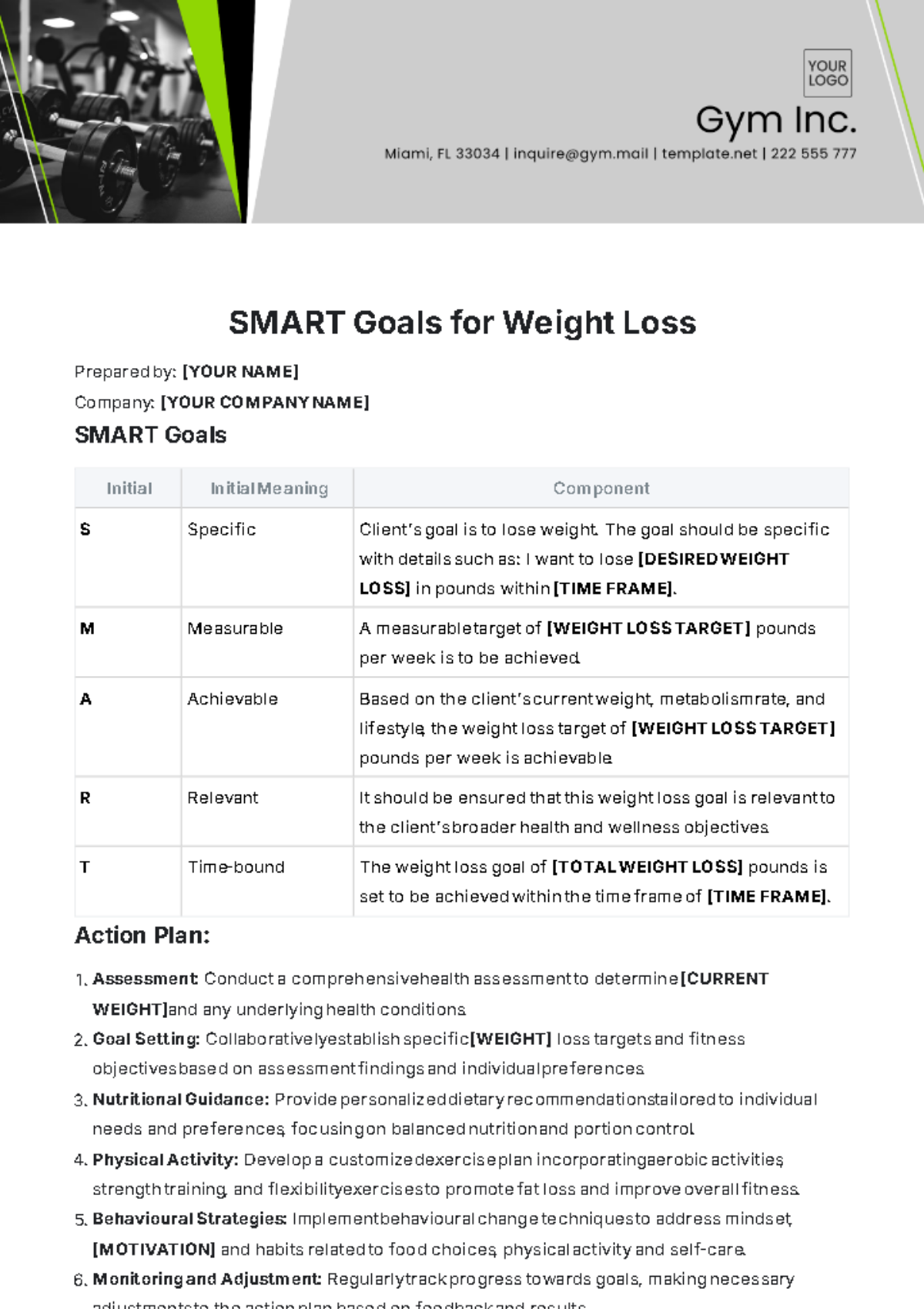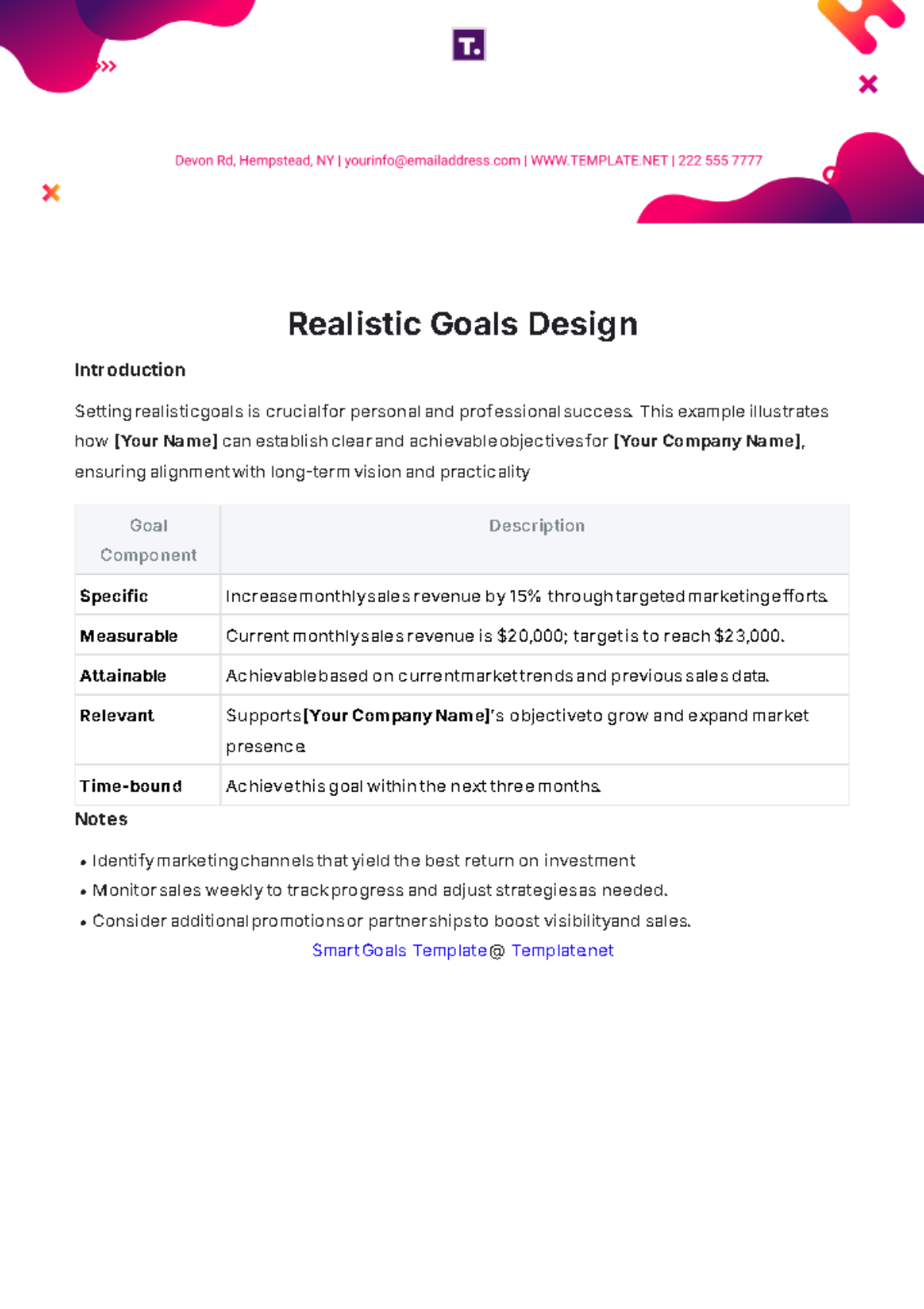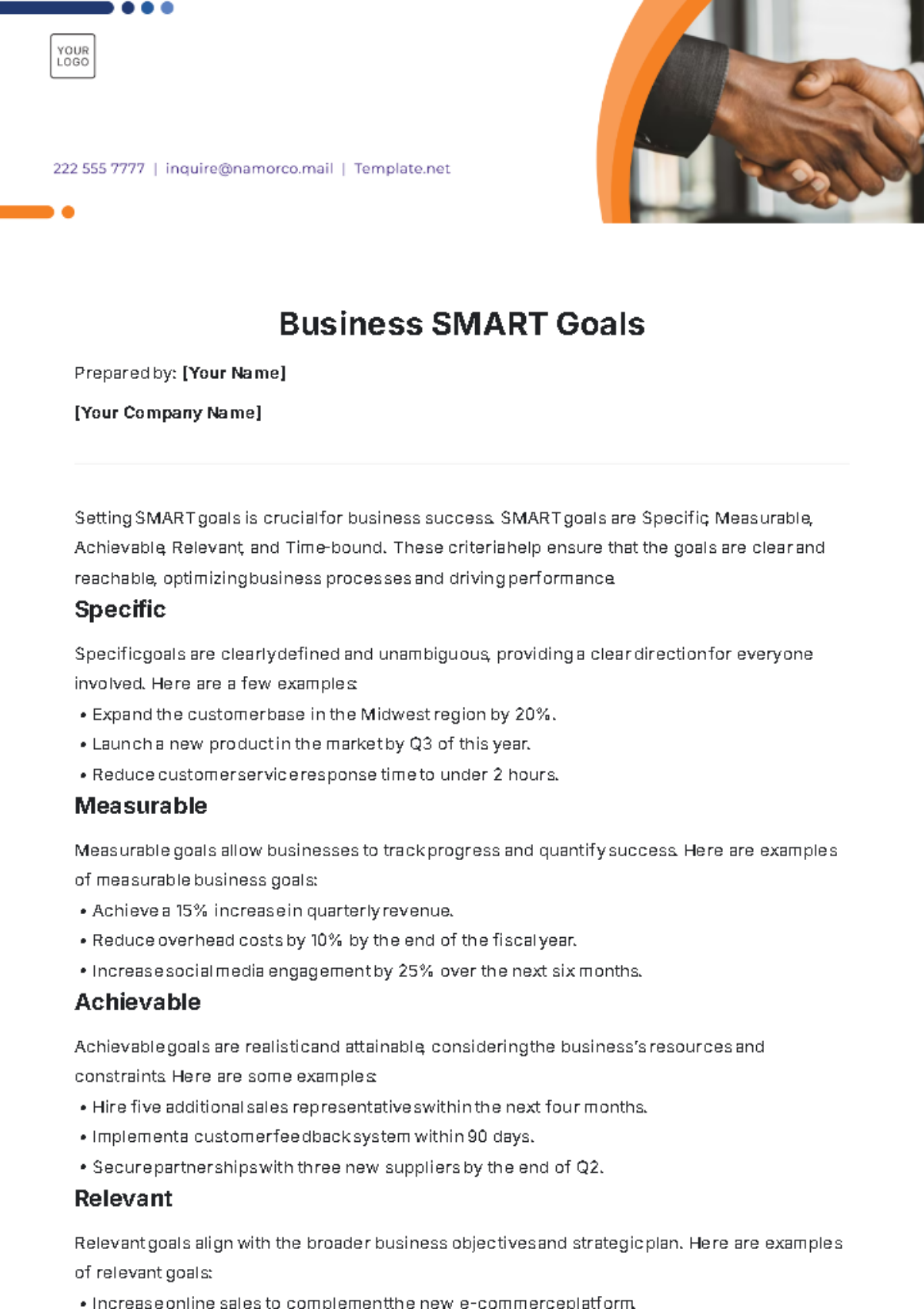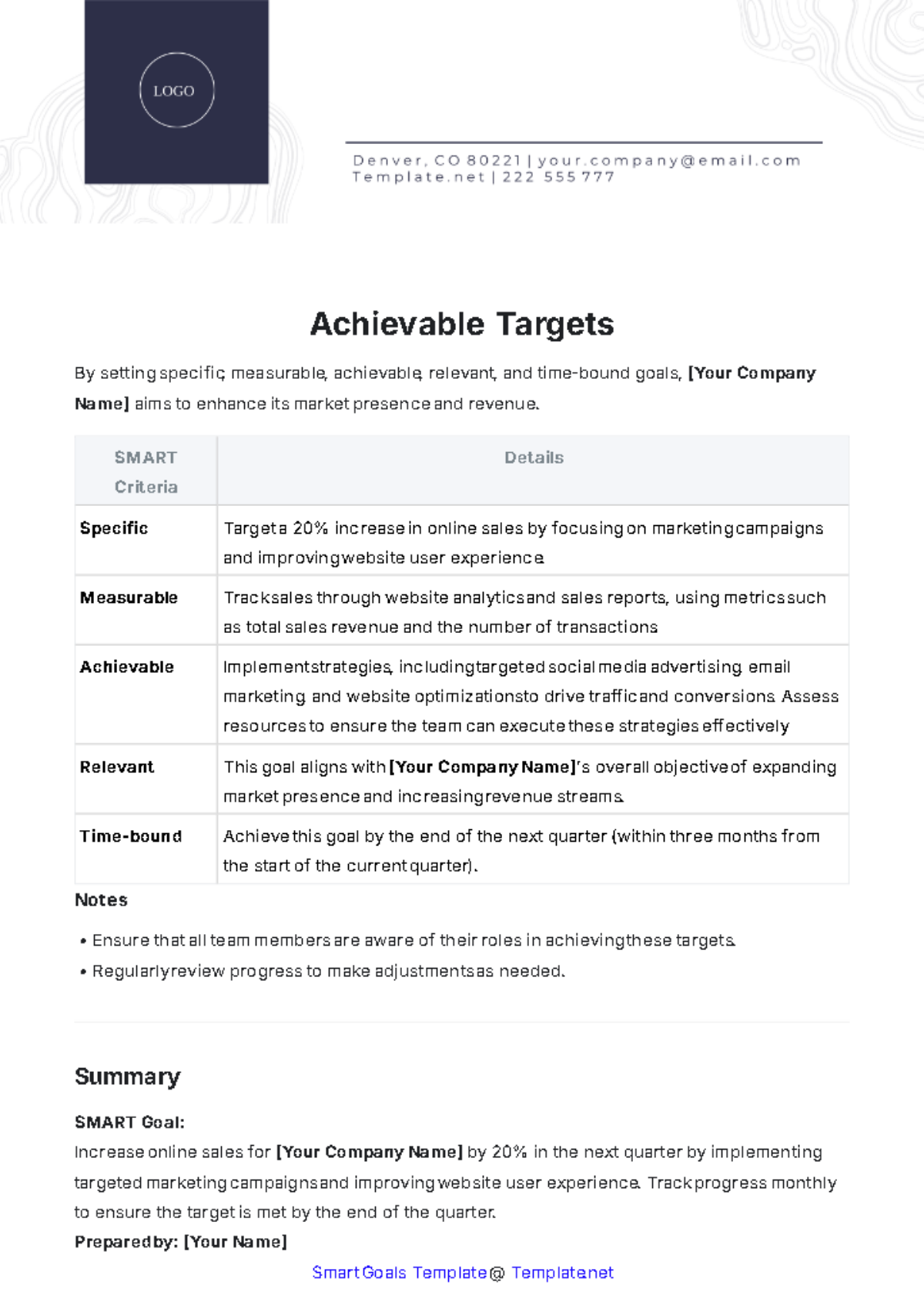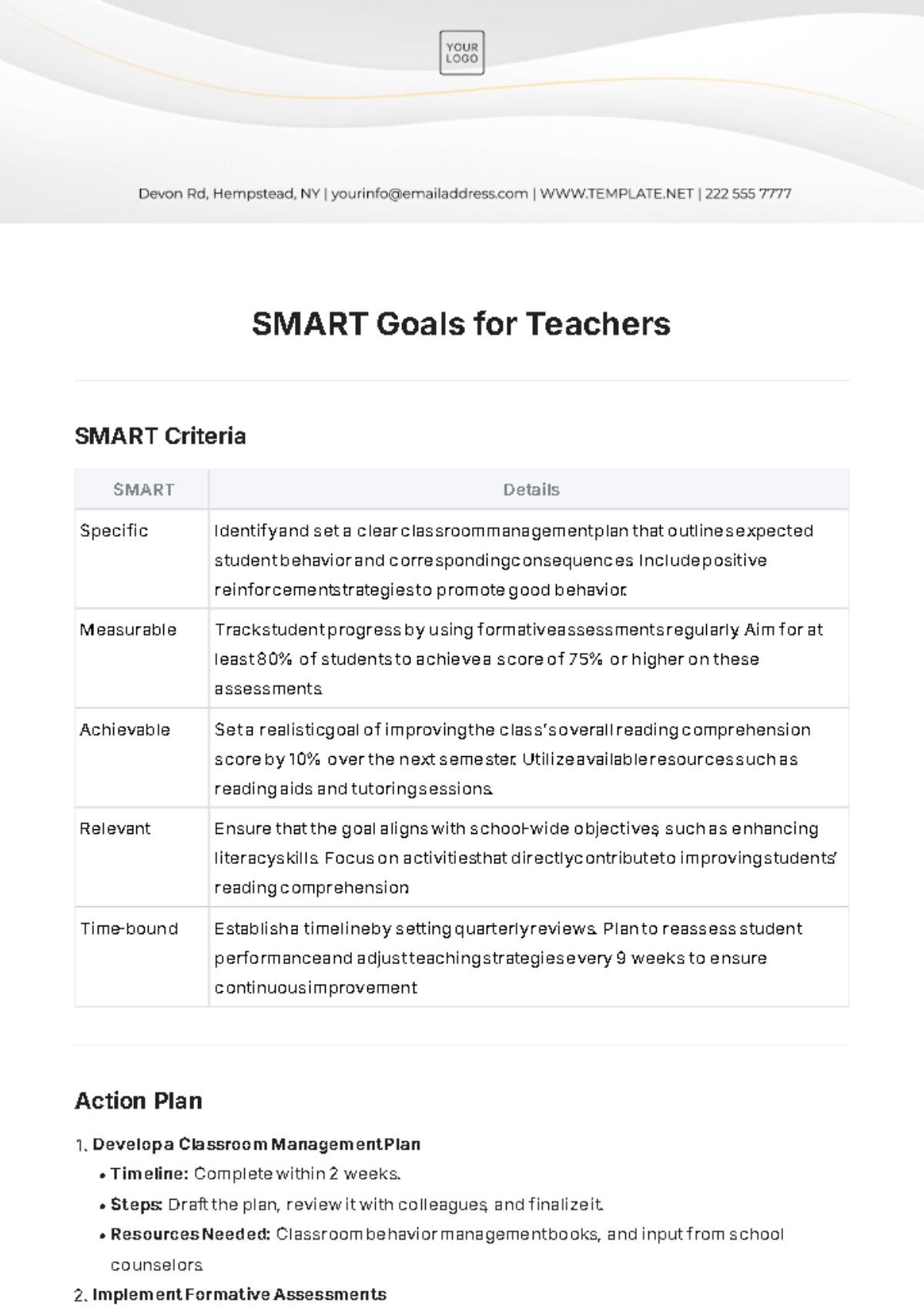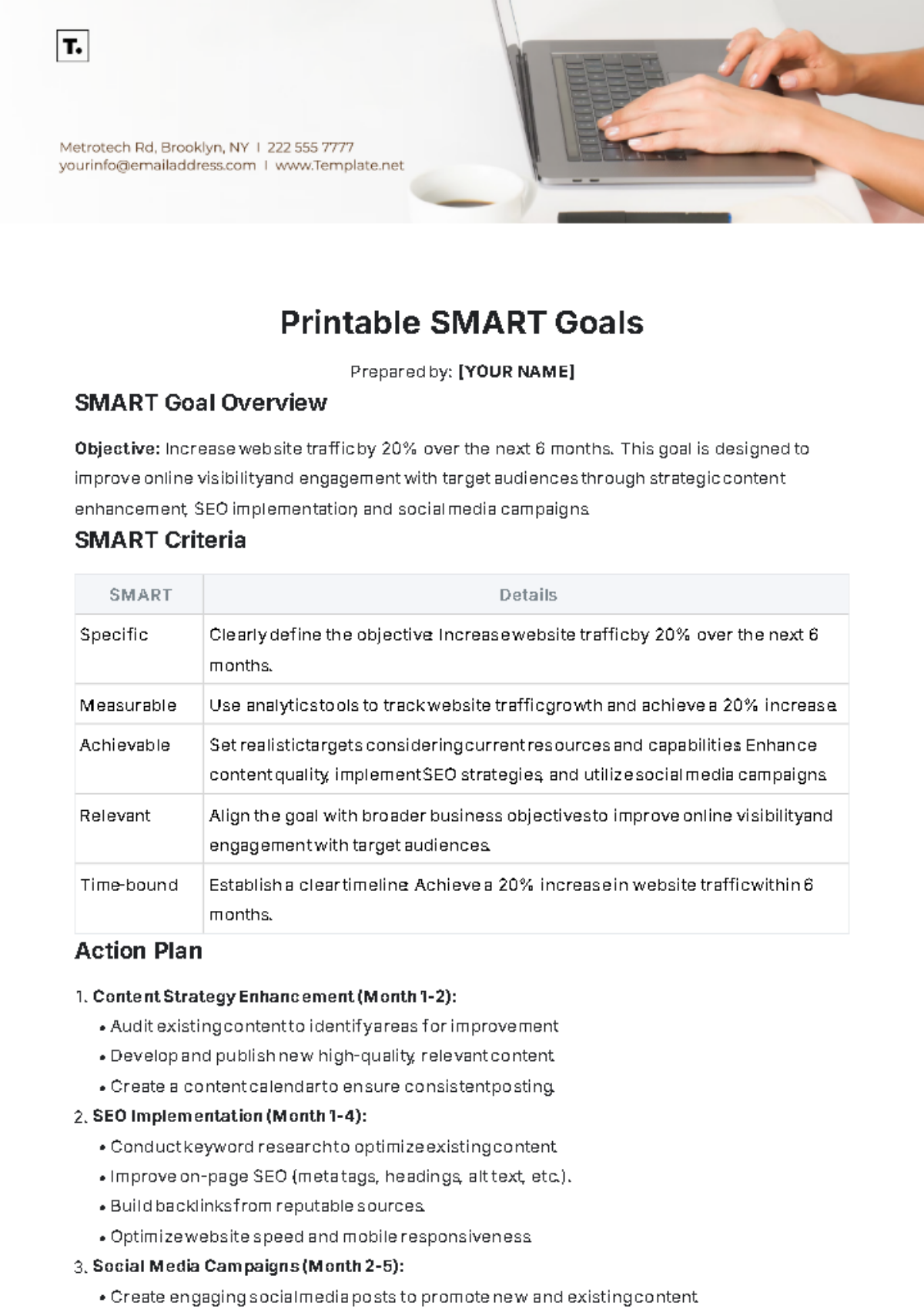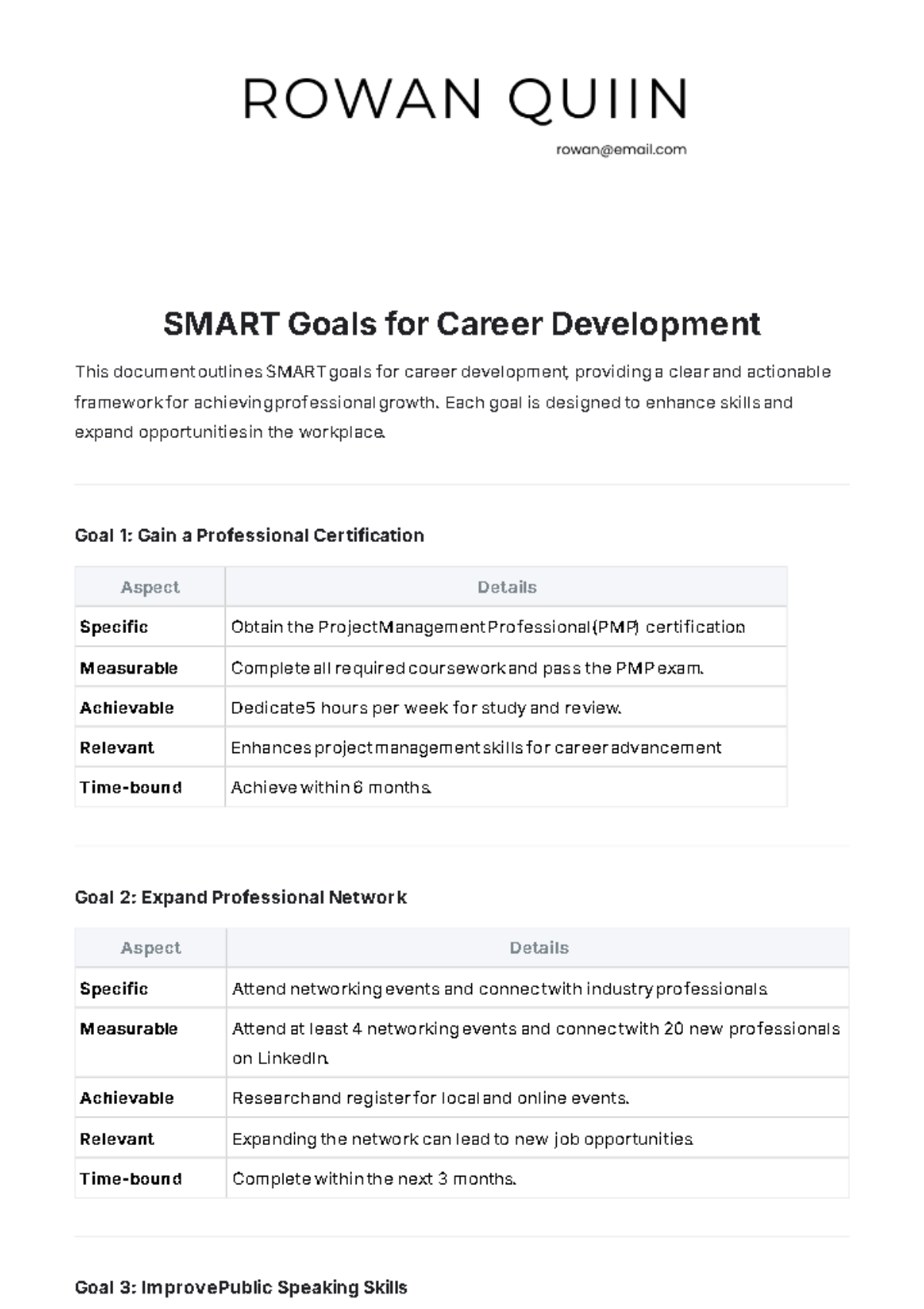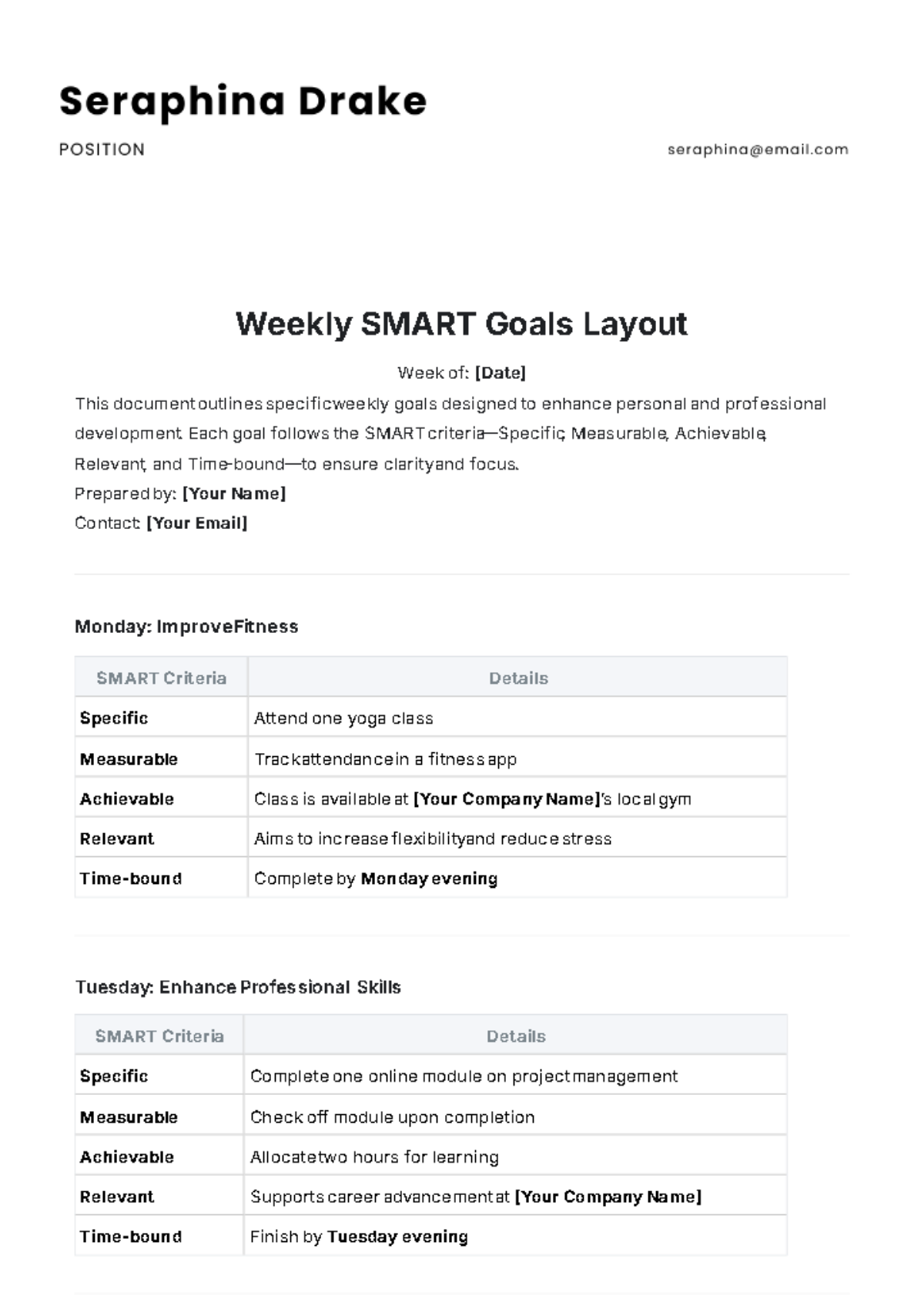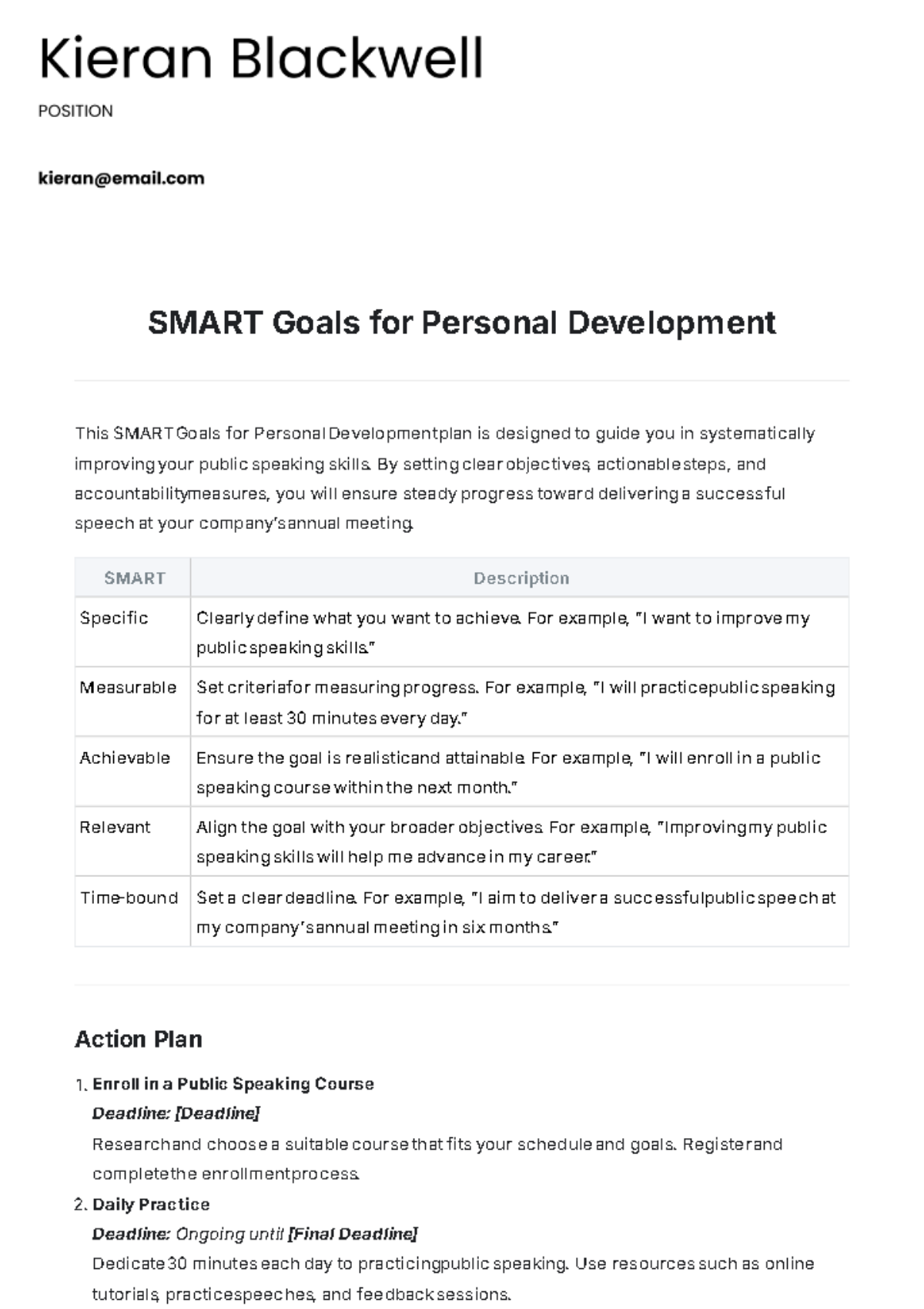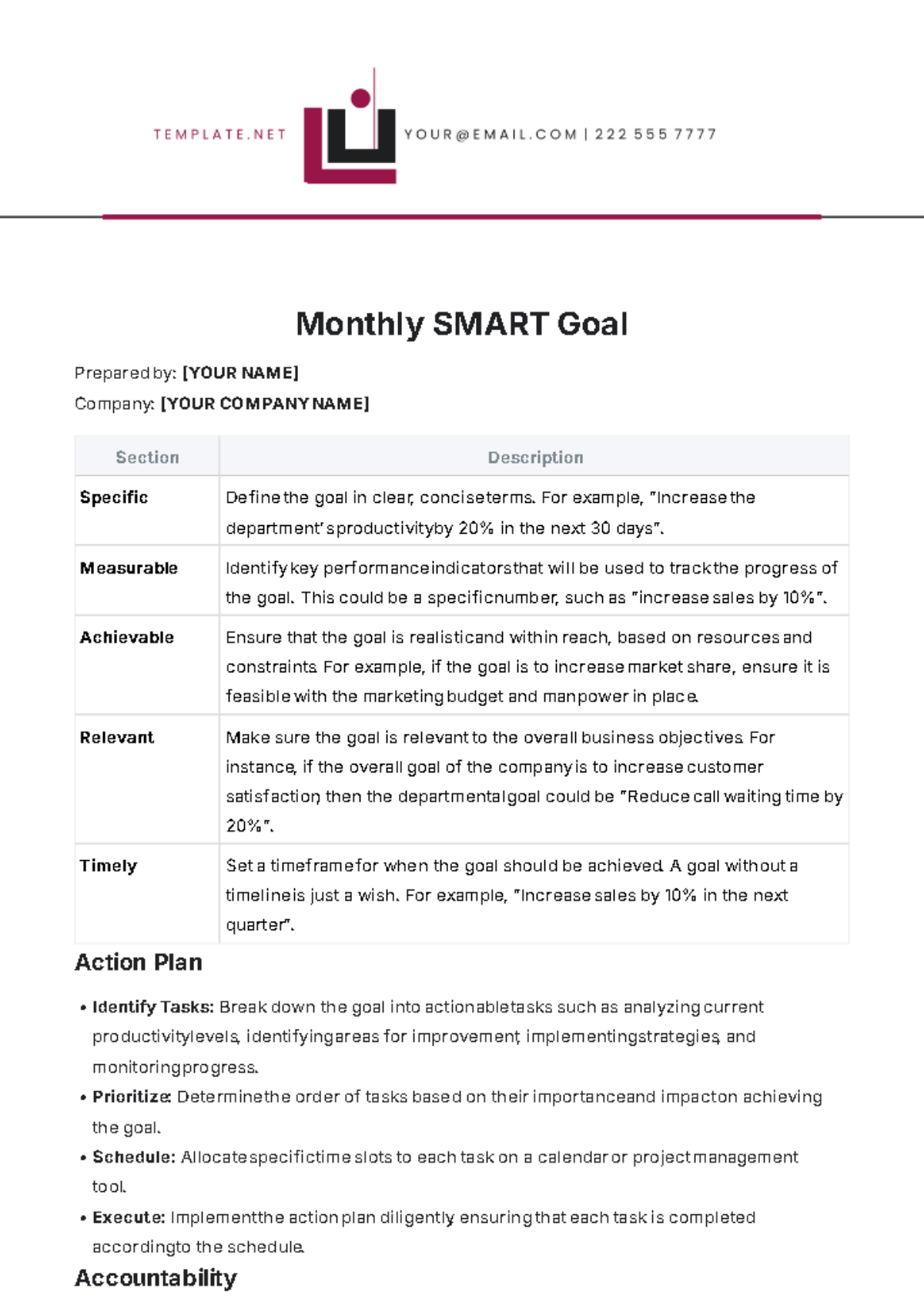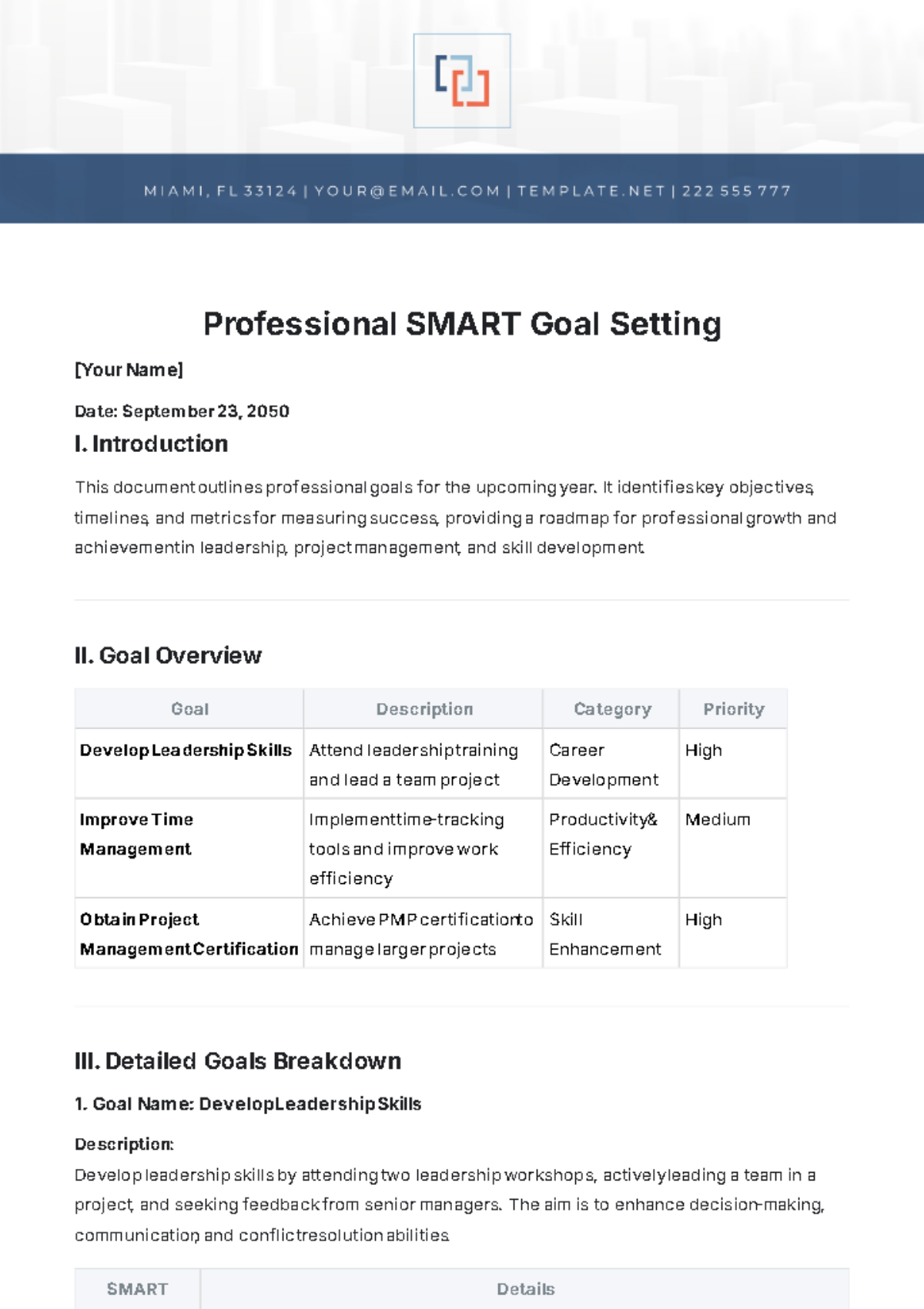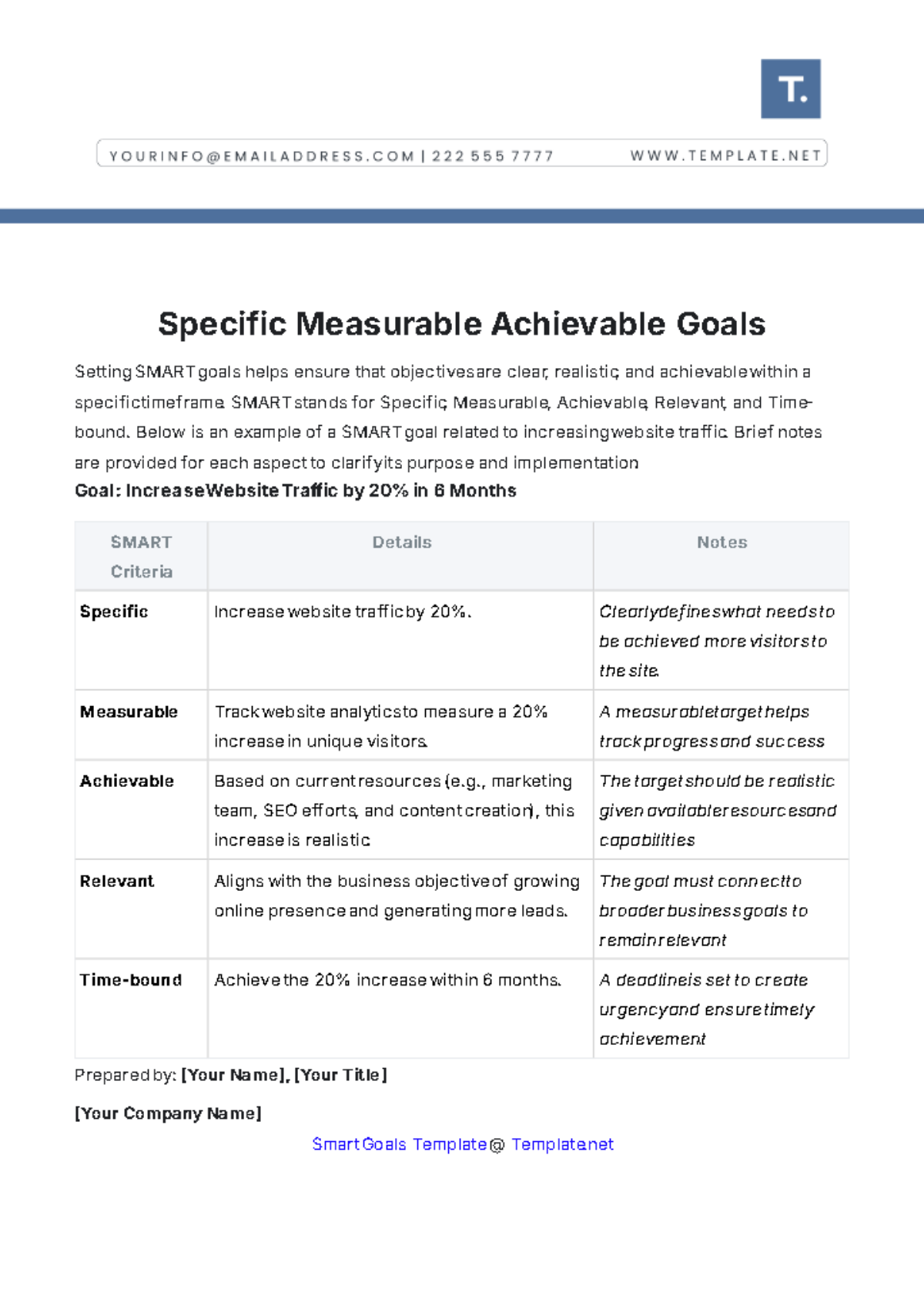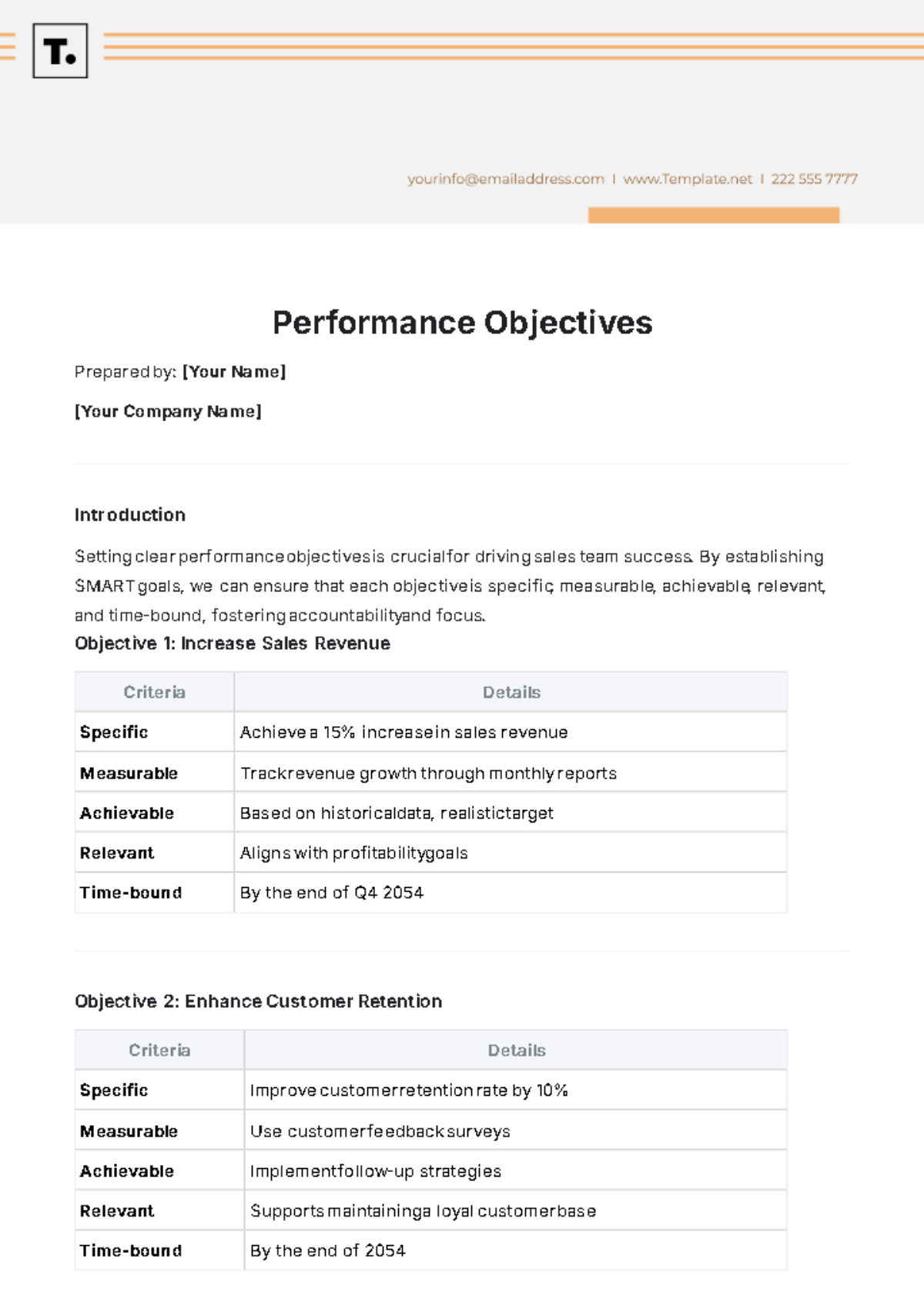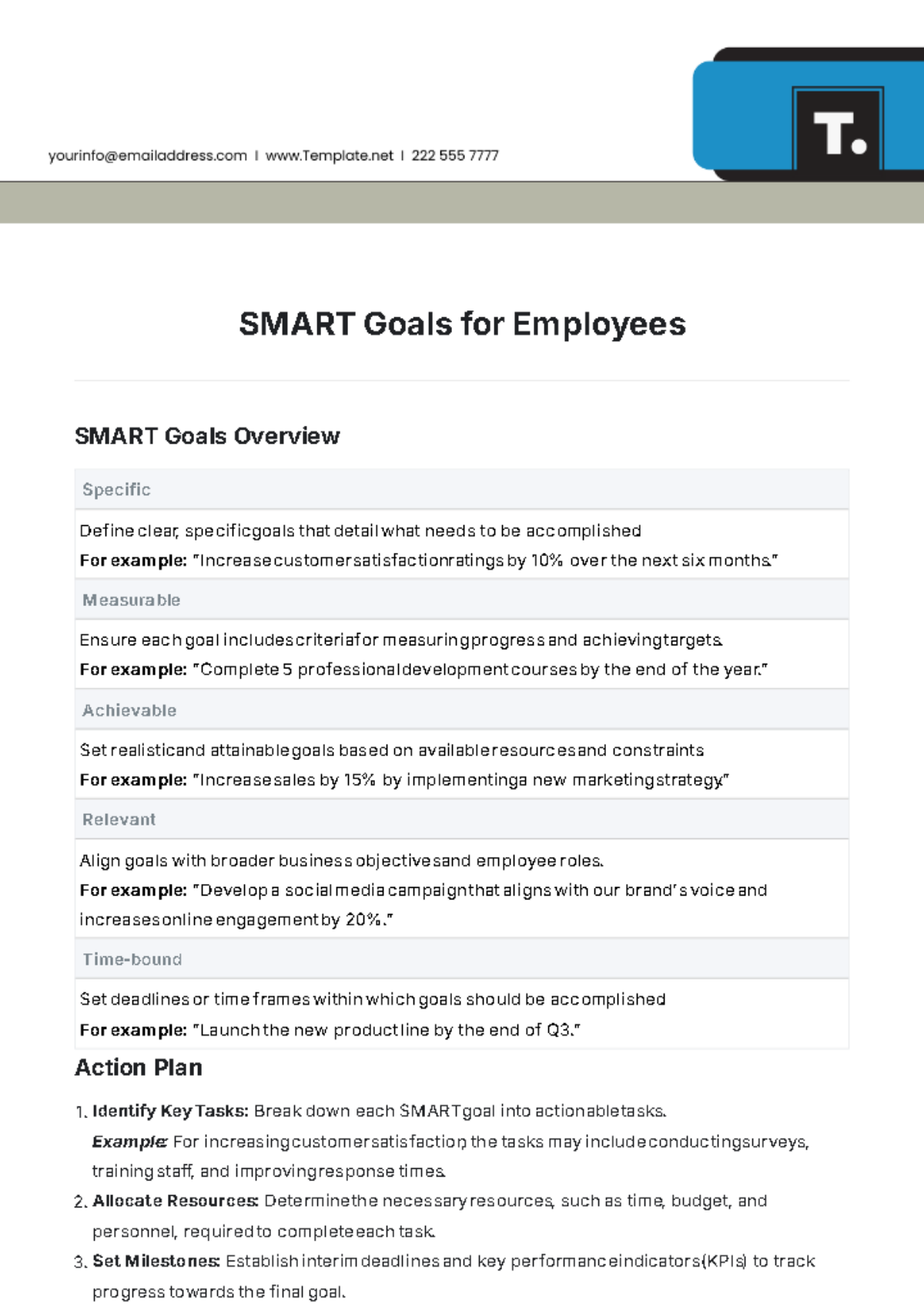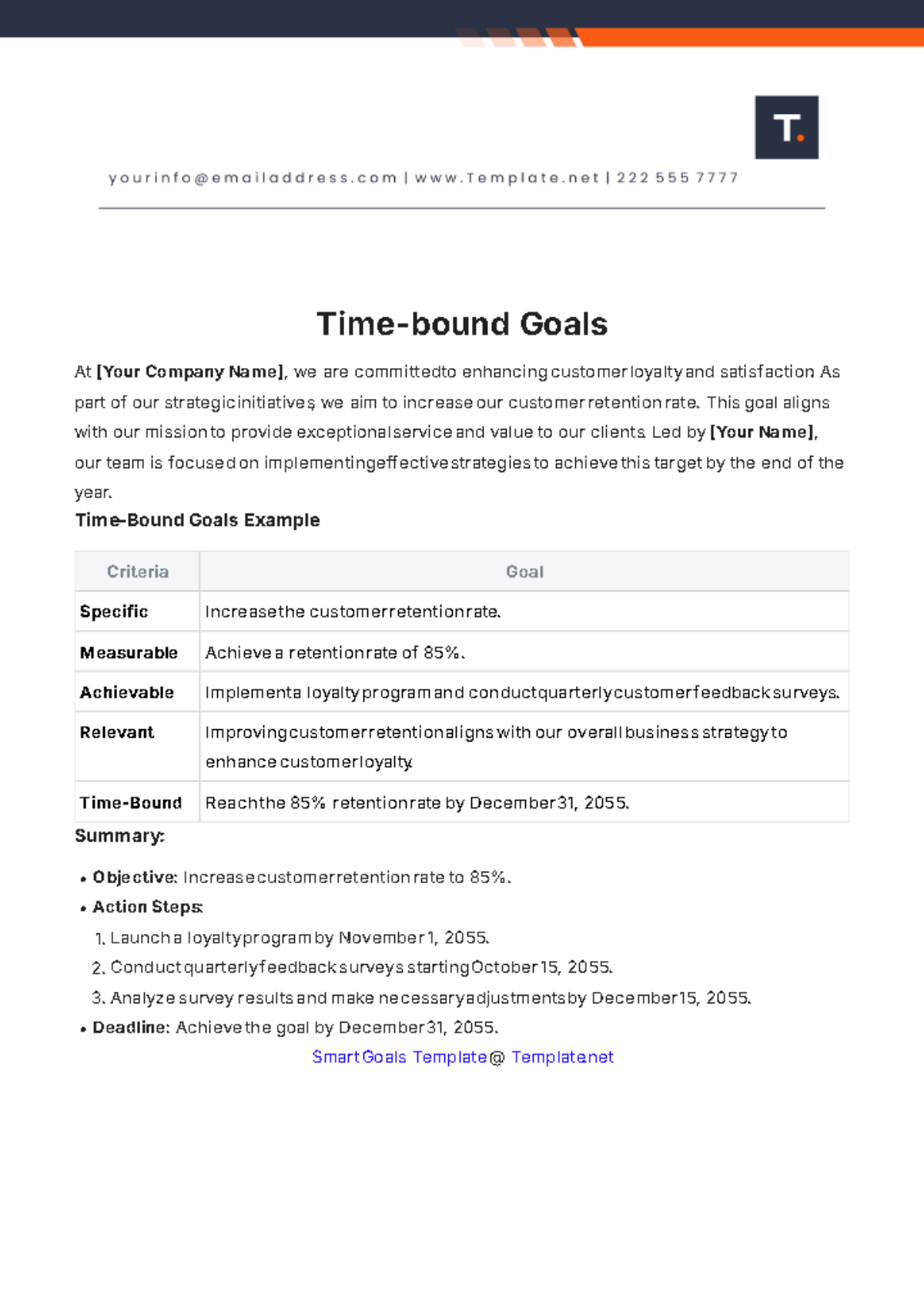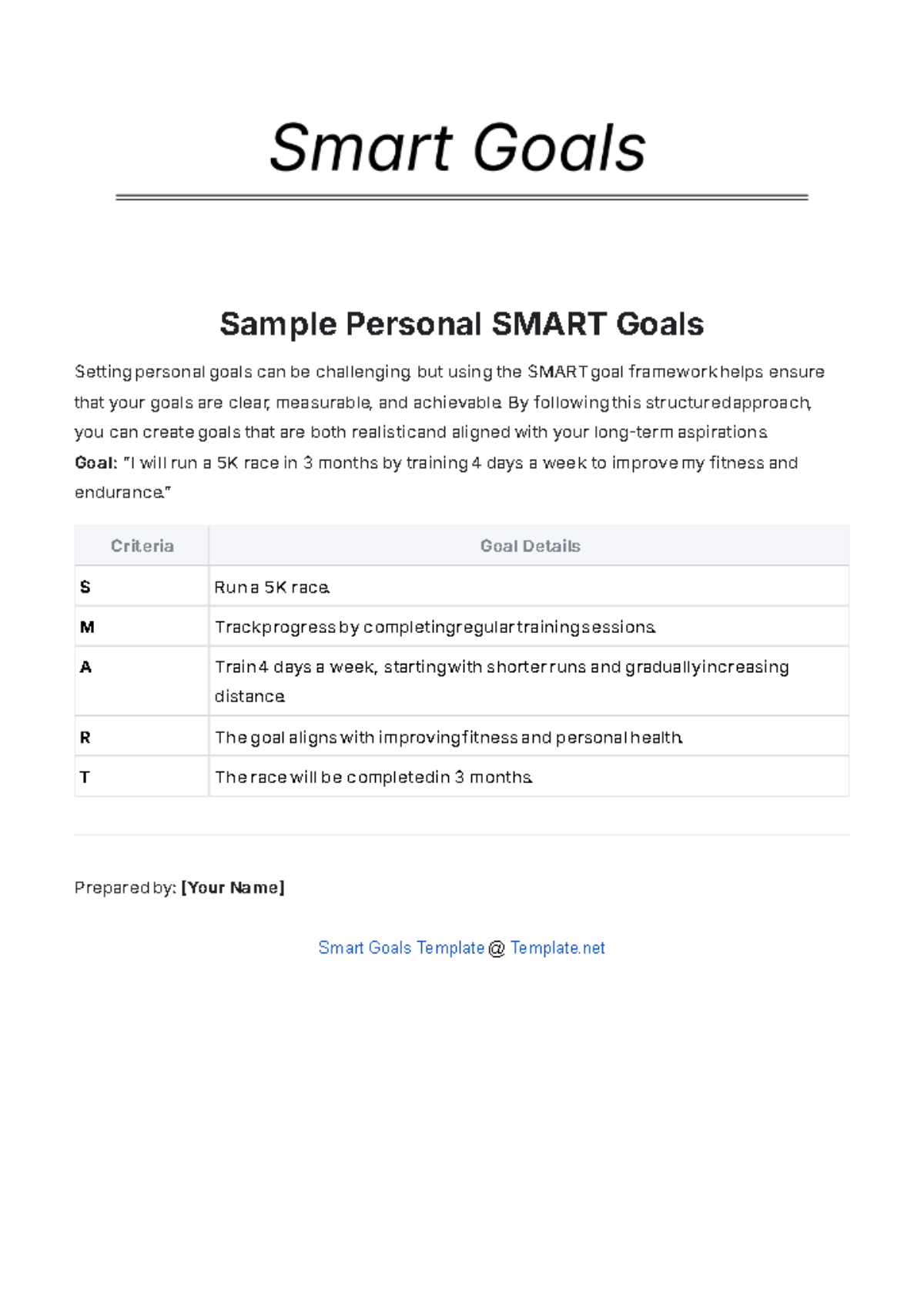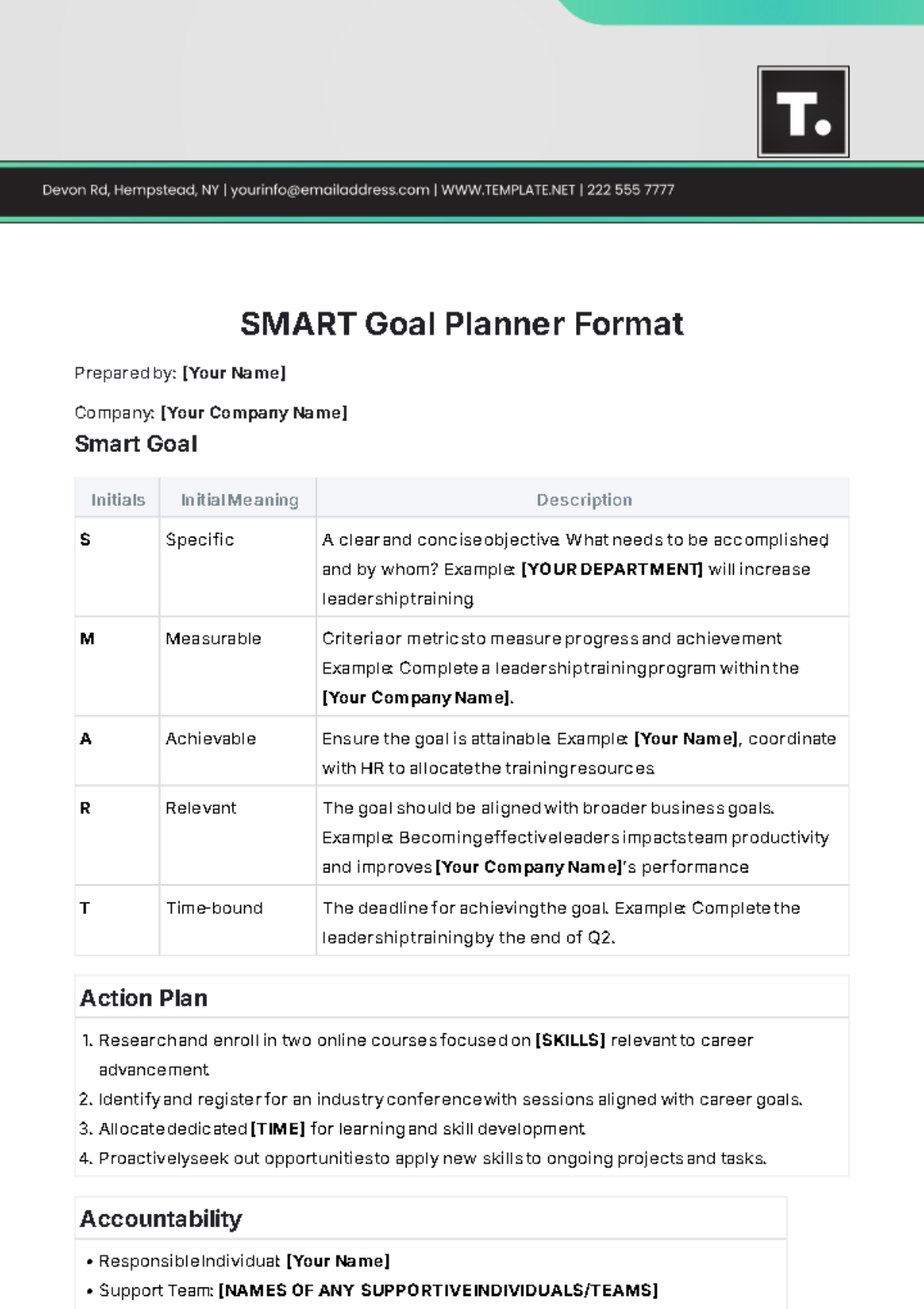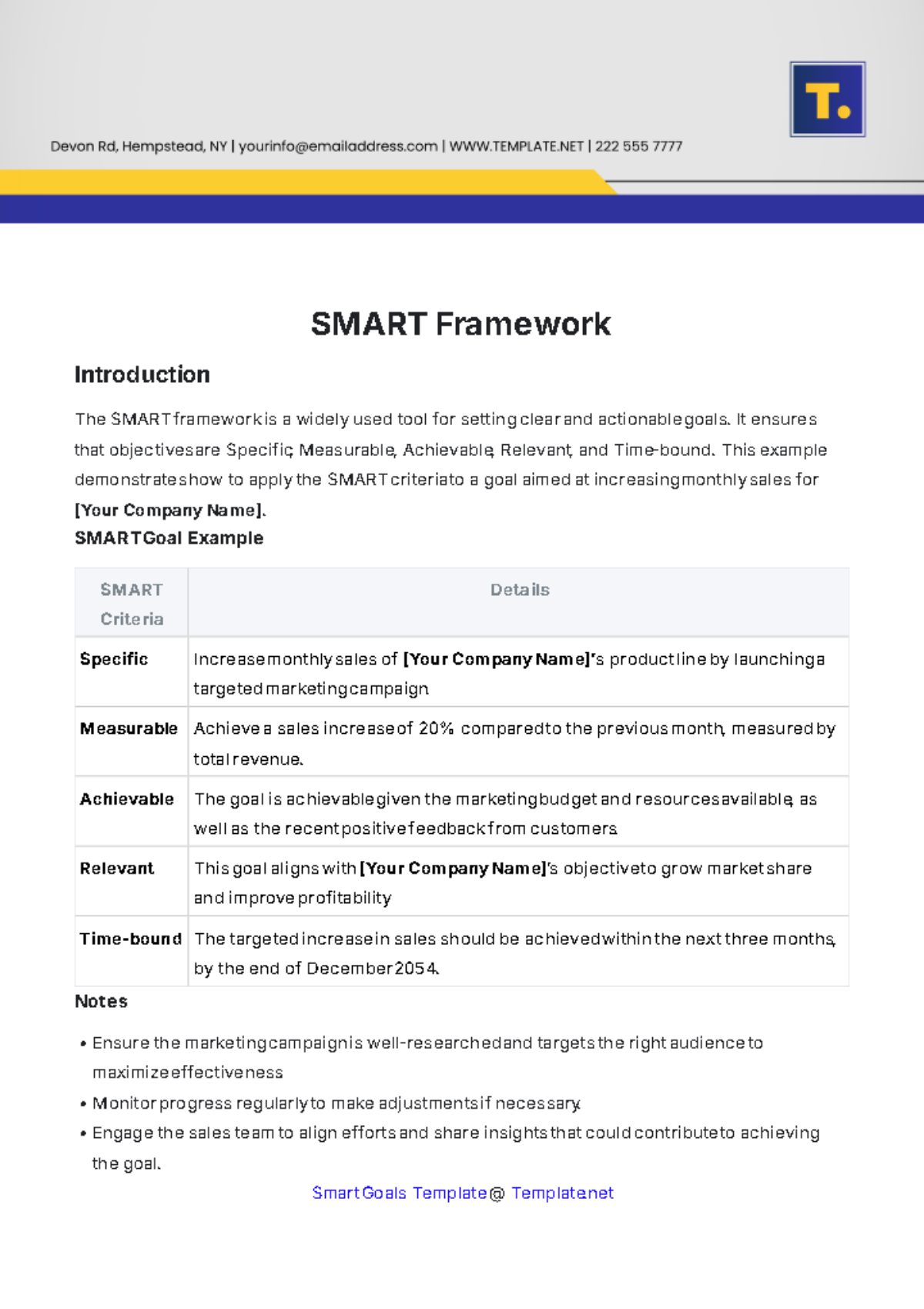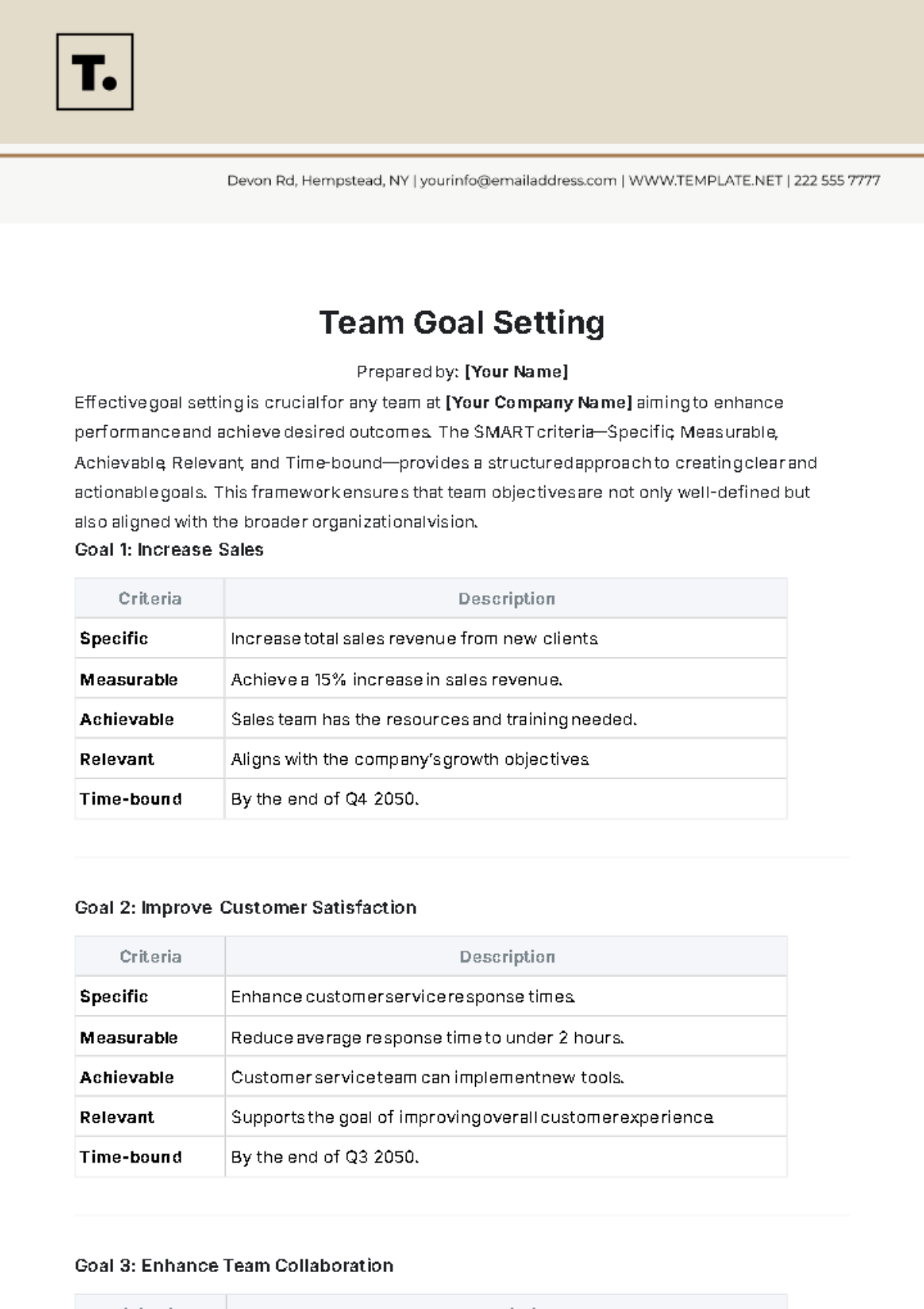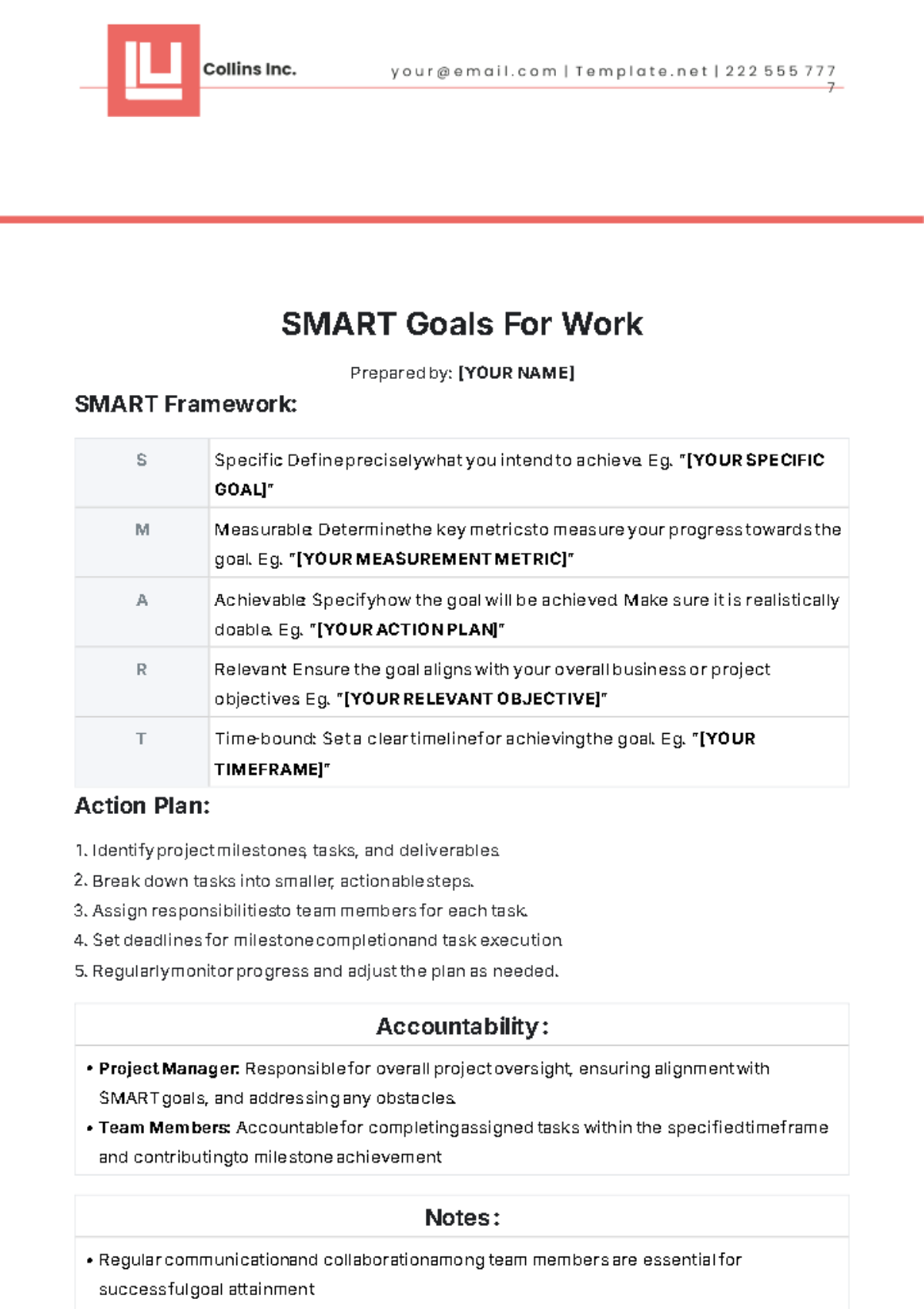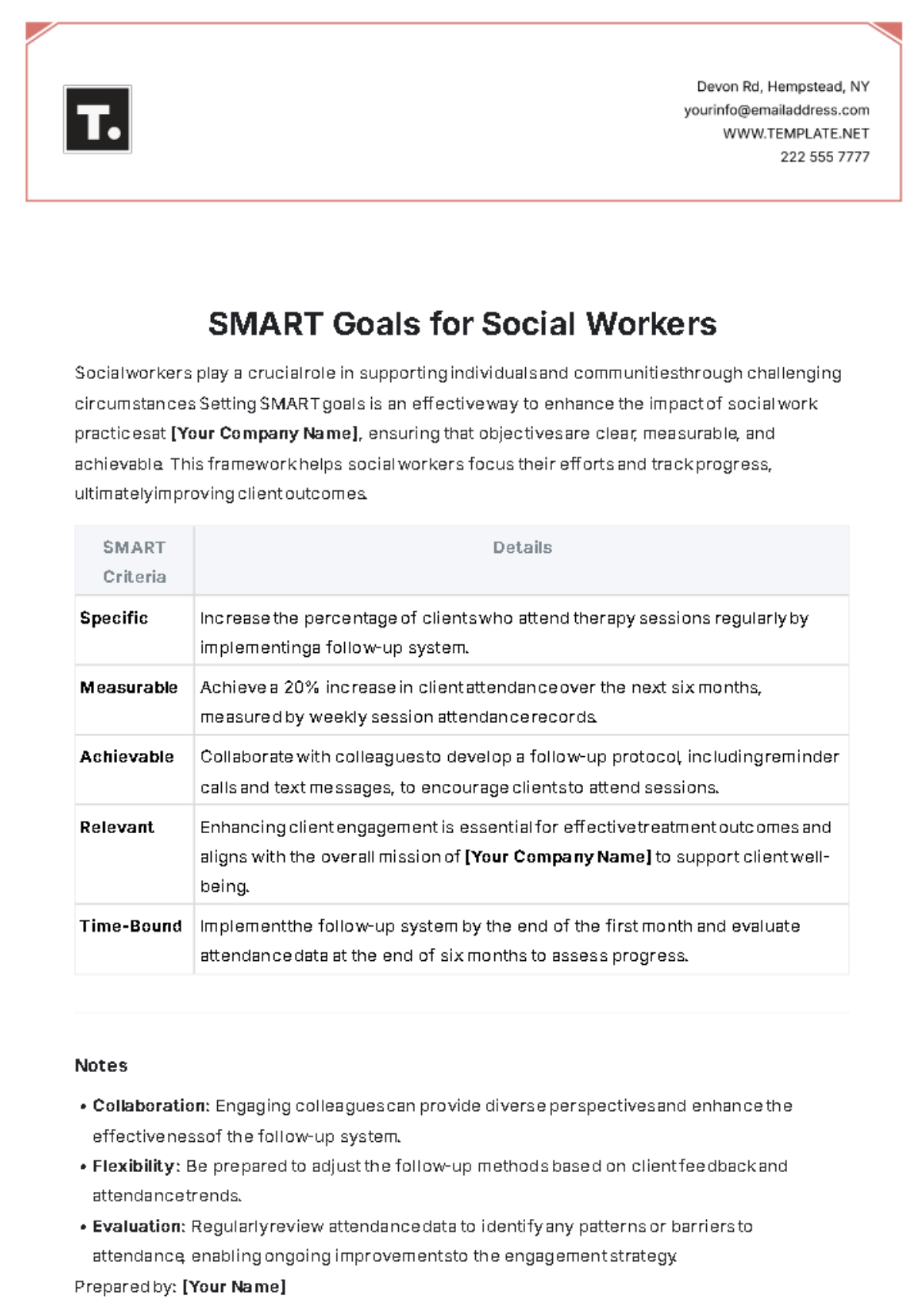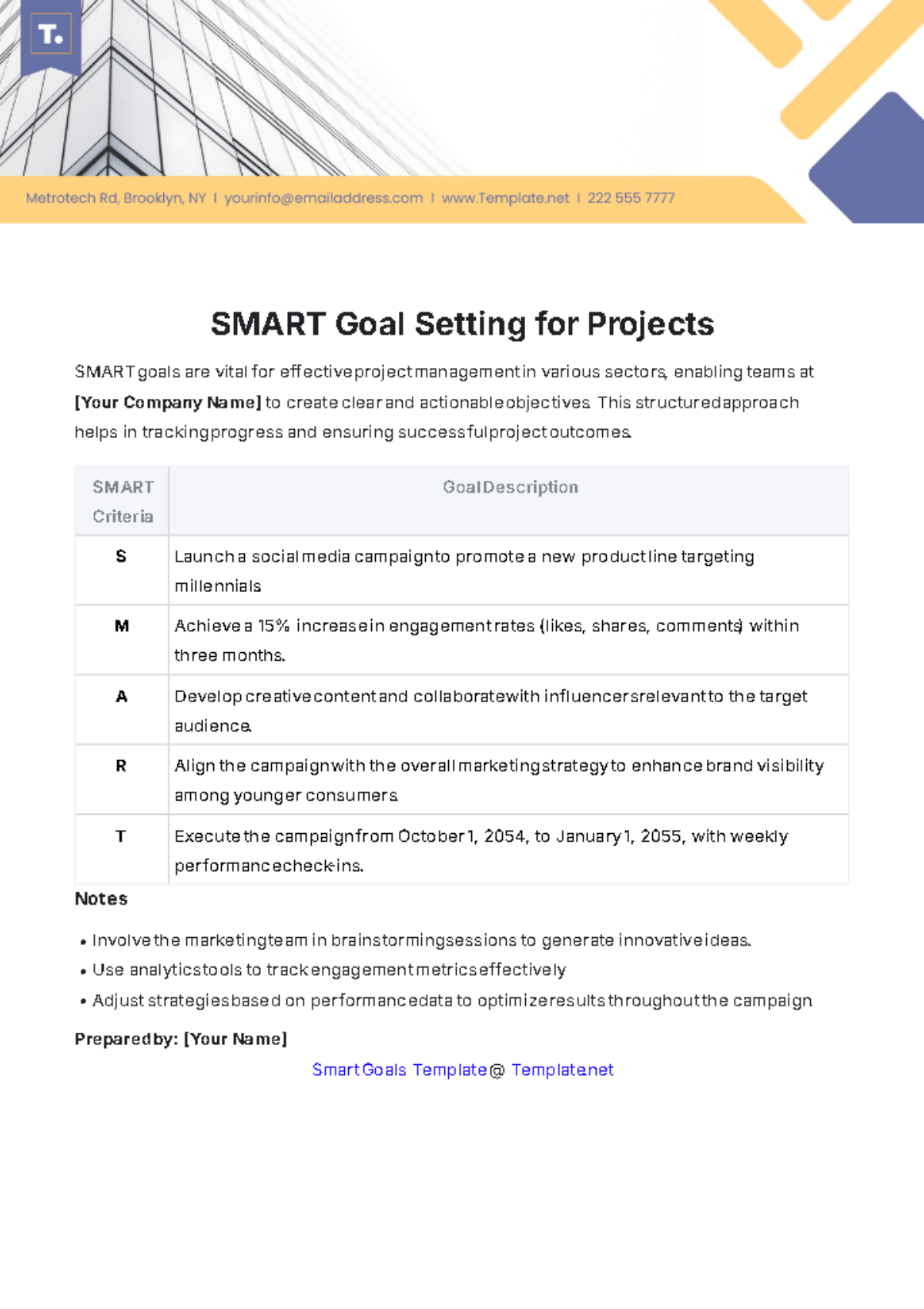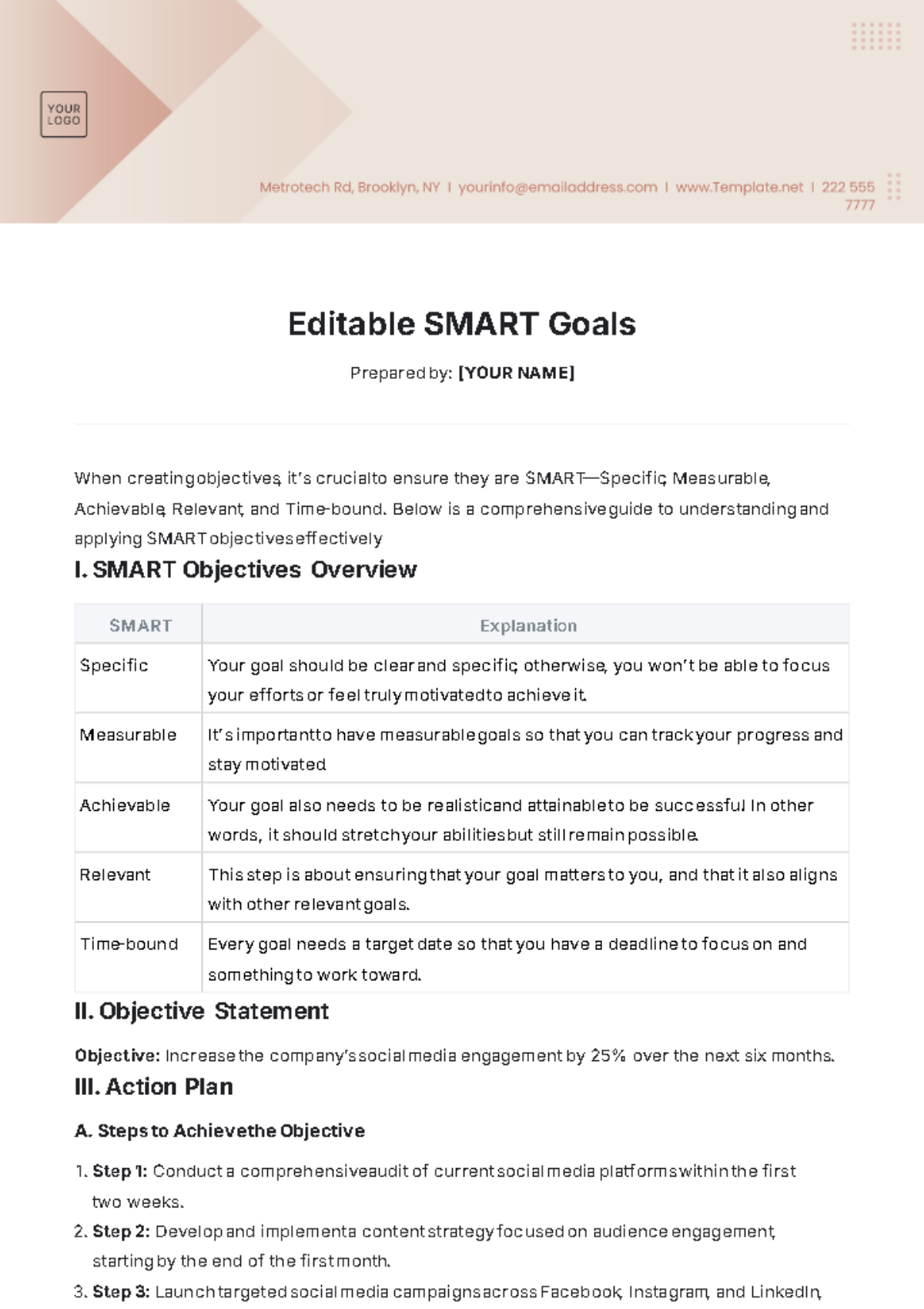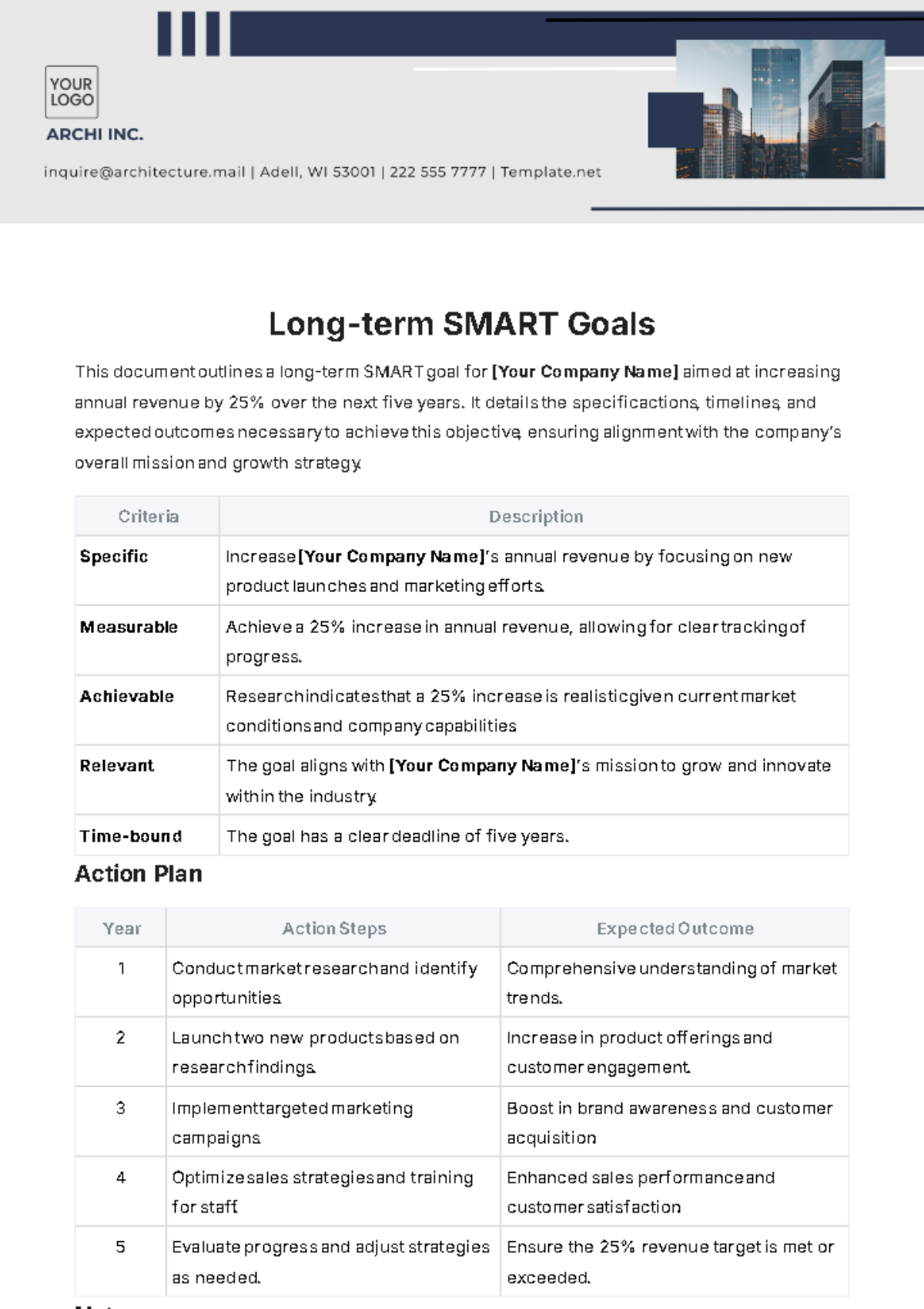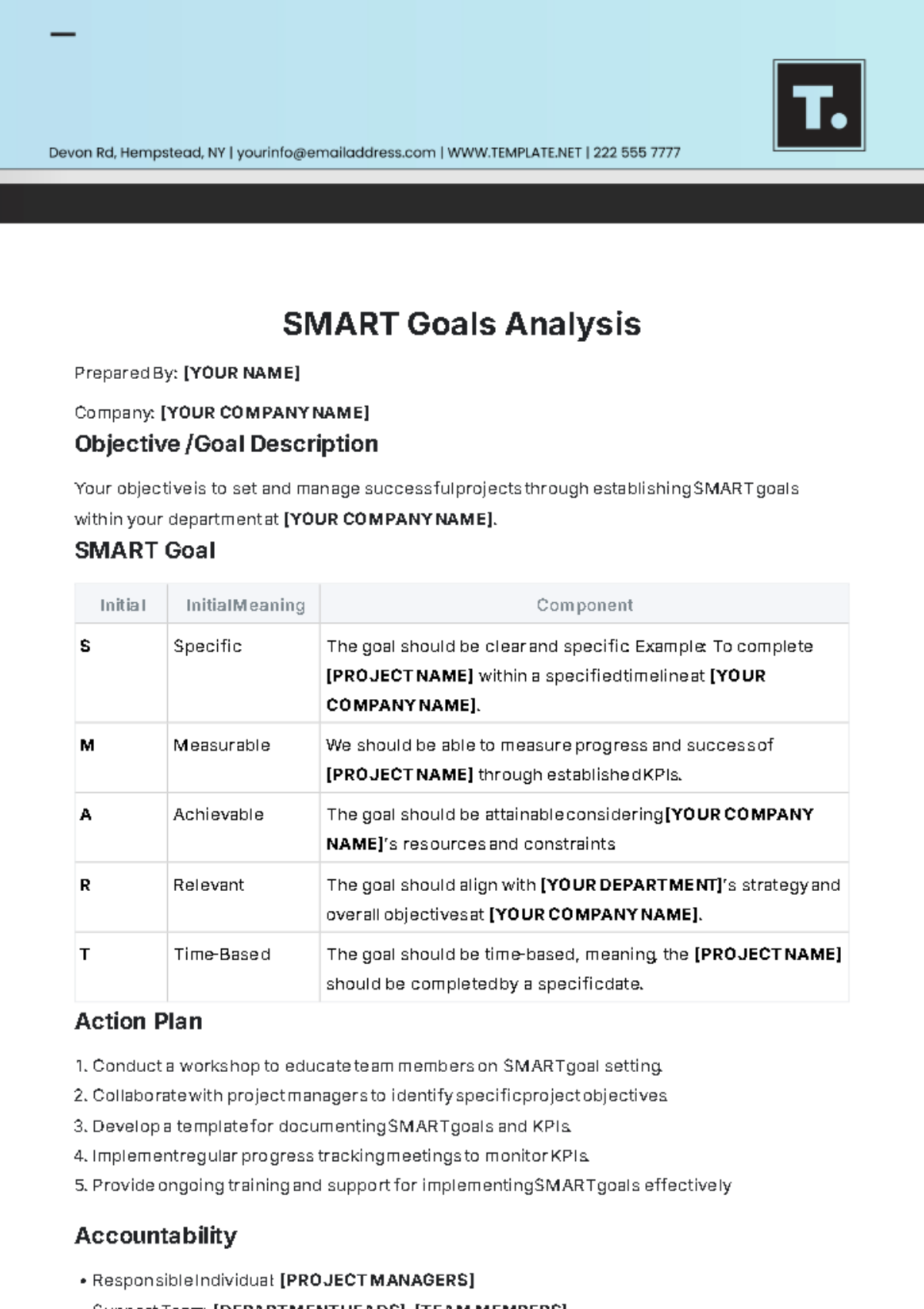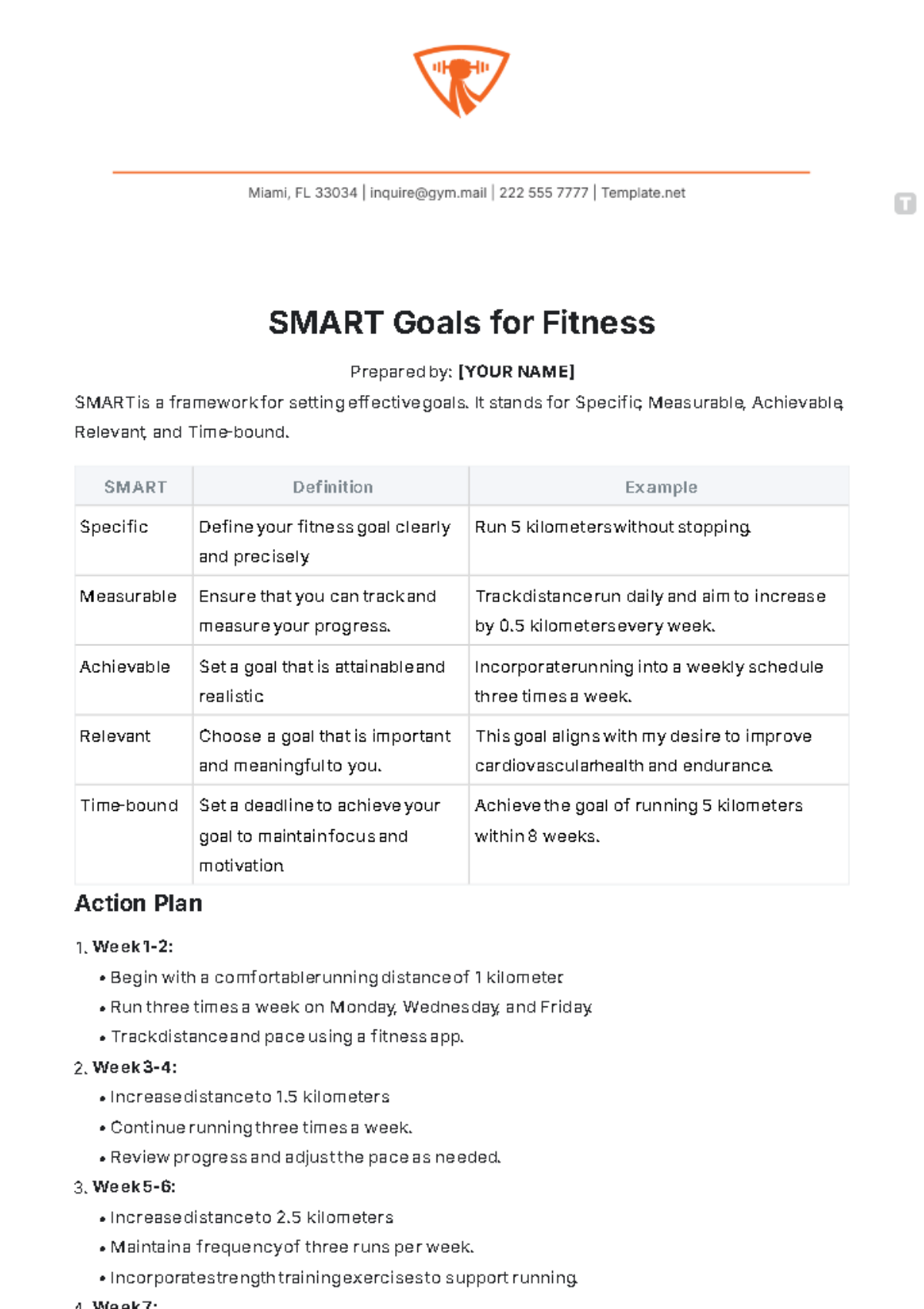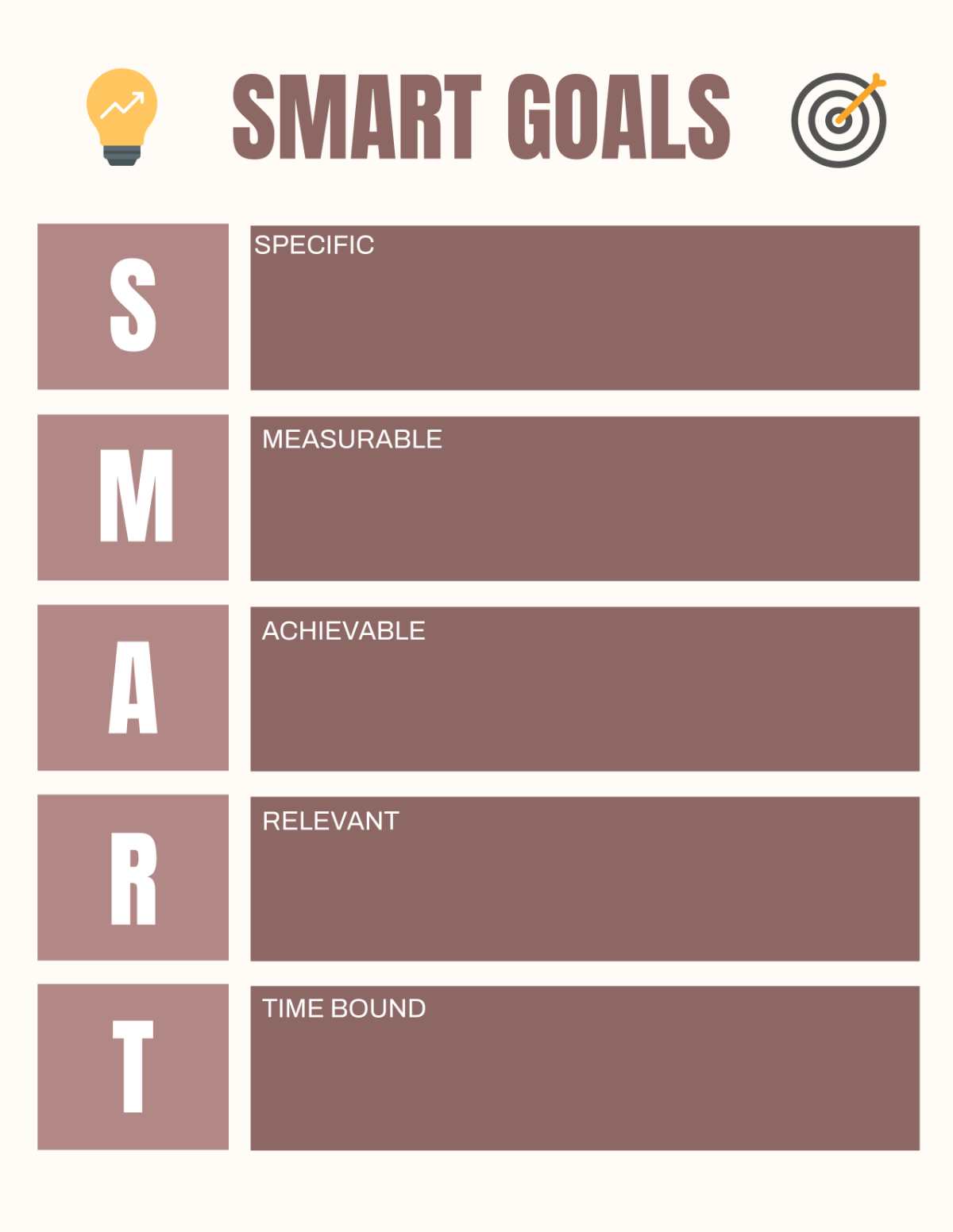Free SMART Goals for Time Management Template
SMART Goals for Time Management
Prepared by: [YOUR NAME]
Company: [YOUR COMPANY NAME]
The aim of this template is to aid professionals in various industries in increasing their productivity and efficiency through better time management. This SMART Goals Template clearly outlines how to effectively set goals that are Specific, Measurable, Achievable, Relevant, and Time-bound.
SMART Goal
Initial | Initial Meaning | Component |
|---|---|---|
S | Specific | The goal should be clearly defined and specific. For example, "[SPECIFIC TIME MANAGEMENT GOAL HERE]." |
M | Measurable | The goal should be quantifiable so progress can be tracked. For instance, "[HOW PROGRESS WILL BE MEASURED HERE]." |
A | Achievable | The goal should be realistic and attainable within the individual's capabilities. Consider factors such as workload, available resources, and time constraints. |
R | Relevant | The goal should align with the professional's overall objectives and contribute to increased productivity and efficiency in their work tasks. |
T | Time-bound | The goal should have a specific deadline or timeframe for completion. Set a deadline for achieving the goal, such as "[INSERT DEADLINE HERE]." |
Action Plan |
|
Accountability
Accountability Partner/Method:
Share the SMART goal and action plan with a colleague, mentor, or accountability partner who can provide support and encouragement, such as [NAME/ROLE HERE].
Schedule regular check-ins to discuss progress, challenges, and adjustments to the time management strategies, such as [FREQUENCY HERE].
Hold yourself accountable by setting reminders and deadlines for completing tasks and reviewing progress toward the goal.
Notes
Additional Considerations:
Be flexible and adaptable in implementing time management strategies, as what works for one professional may not work for another.
Take breaks and prioritize self-care to avoid burnout and maintain productivity levels.
Seek feedback from colleagues or supervisors on time management practices and be open to constructive criticism.
Celebrate milestones and achievements along the way to stay motivated and focused on reaching the overall goal of increased productivity and efficiency.
